🍵 Tea Factory & Museum Worthit!
📍 Limited locations available in Taiwan
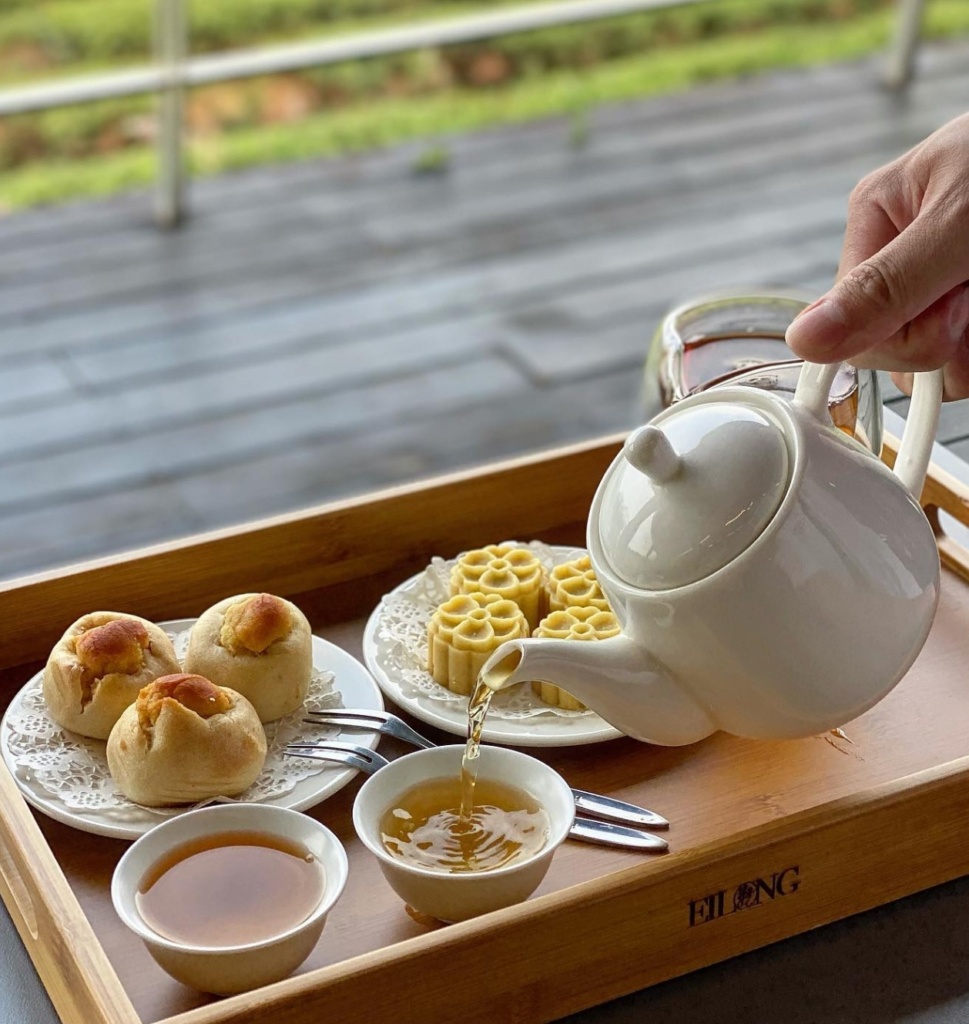
Taiwan Bubble Tea isn’t just famous for its bubble, it is the fascinating subject- the tea, that decides whether it’s a good bubble tea.
The tea industry has been long-established in Taiwan and was the industry that dominates the whole island.
A visit to a tea factory has thus should be put into the Taiwan travel itinerary for a good reason!
The production of tea is a process that requires heavy machines and plenty of manpower.
It involves a tedious procedure of plucking, withering, rolling, oxidizing and drying.
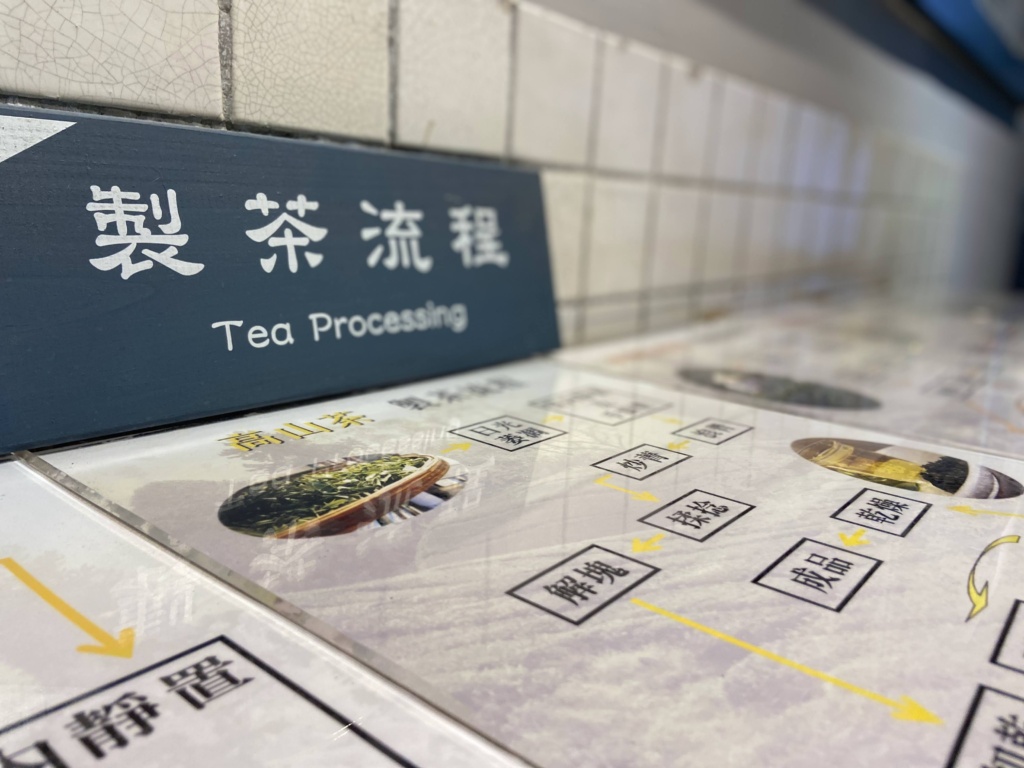
Depending on the tea factories, you perhaps would start out in the plantation itself to learn about how tea is cultivated, then visit the factory where ancient machines pre-dating the industrial revolution wither, roll and dry the tea.
Take your time for a tea tasting, either of one specific type of tea or occasionally of the various specialities of that particular factory.
Much like a wine tasting, a traditional tea tasting would involve drinking tea (without milk), swilling it around the mouth to get the taste, and then spitting it out into a spittoon.
The entrance costs are usually nominal or free, and it’s definitely worth your time to pay a visit, even if only to get a chance to see the antique machines at work.
This can always be arranged if you prefer a slightly more private tailored experience!
Now let’s see a few tea factories we got in Taiwan!
1⃣1⃣1⃣1⃣1⃣1⃣1⃣1⃣1⃣1⃣1⃣1⃣1⃣1⃣1⃣1⃣1⃣1⃣1⃣1⃣1⃣1⃣1⃣1⃣1⃣1⃣1⃣1⃣1⃣1⃣1⃣1⃣1⃣1⃣1⃣1⃣1⃣1⃣1⃣1⃣1⃣1⃣1⃣1⃣1⃣1⃣
Sun Moon Lake Antique Assam Tea Farm 日月老茶廠
The Assam Tea for the Moon
📌 Yuchi Township, Nantou county, Taiwan (555台灣南投縣魚池鄉有水巷38號)
🔎 Sun Moon Lake Antique Assam Tea Farm 日月老茶廠 Website
💰 No entrance fee
🕔 08:00-17:00 daily

Combined with mild temperatures, the Yuchi Township of Nantou boasts a perfect place for tea trees to thrive.
Assam tea was first introduced to Taiwan during the Japanese Colonial Era, and the Yuchi Township produced some of the best black tea at the time.
The quality was so highly approved that over 7,000 tons of black tea were exported.
The Yuchi Township was therefore recognized as the “hometown of black tea.”
However, in the 1970s, labour costs started to soar and the cheap tea leaves from India and Sri Lanka (formerly known as Ceylon) further weakened the Taiwanese tea industry.
In order to survive, many tea farmers started to grow cash crops such as betel nuts…
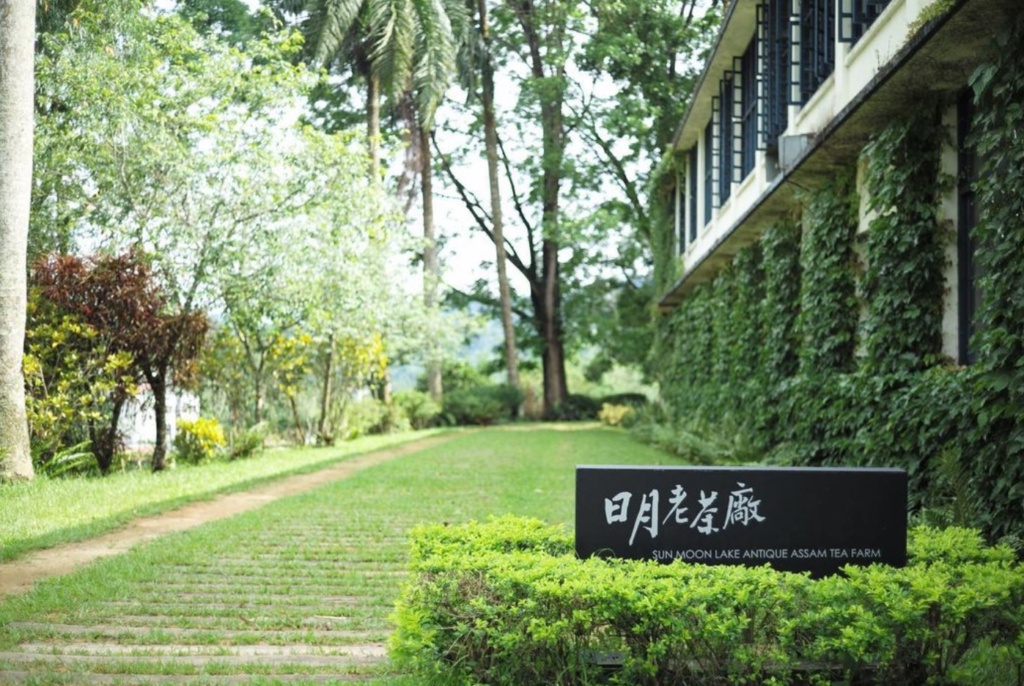
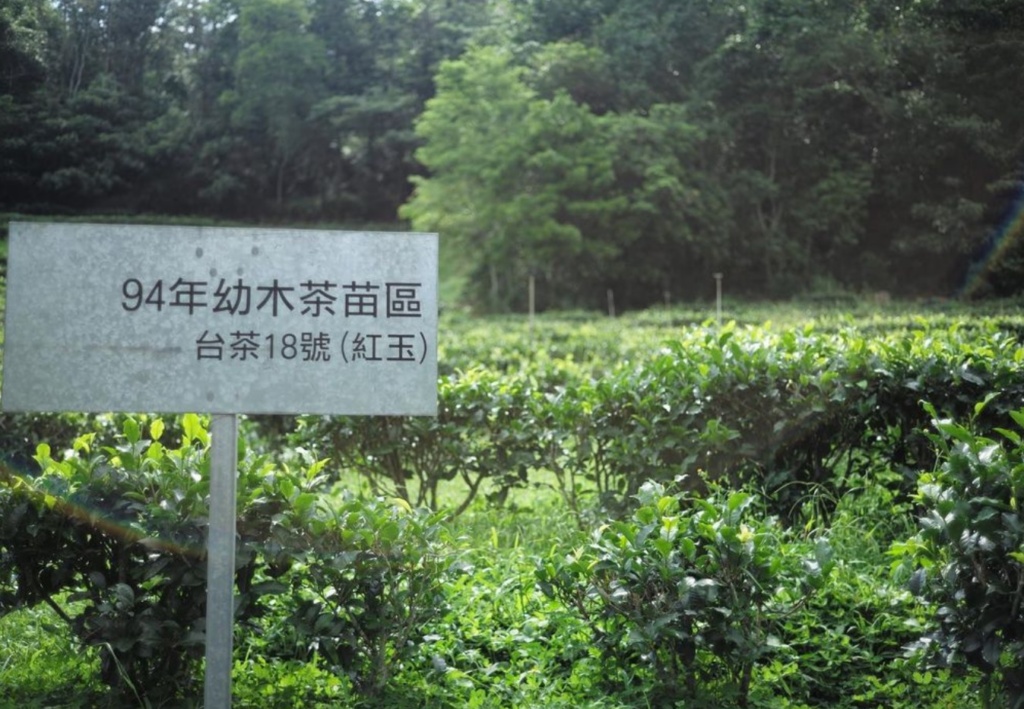
In 2003, Sun Moon Lake Antique Assam Tea Farm went into sharp decline and had to be shut down for good.
Nevertheless, five employees decided to stay and have been striving to restore the glory of the tea farm ever since then.
With their everlasting efforts, the traditional tea factory has been successfully turned into a tourism factory filled with educational and cultural values, allowing visitors to travel down the time tunnel and back in time to revisit the heyday of Sun Moon Lake Antique Assam Tea Farm.

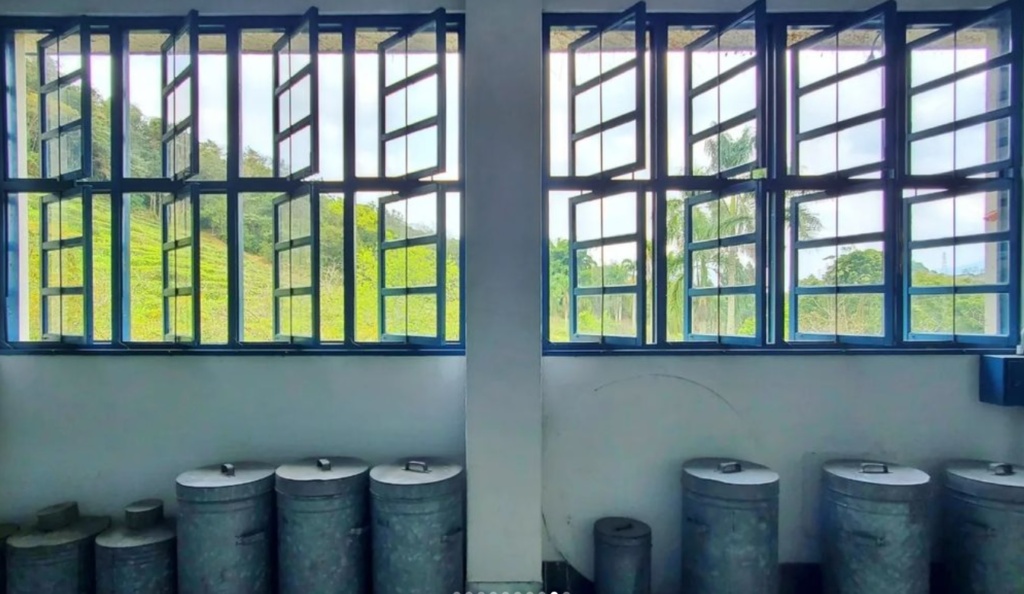

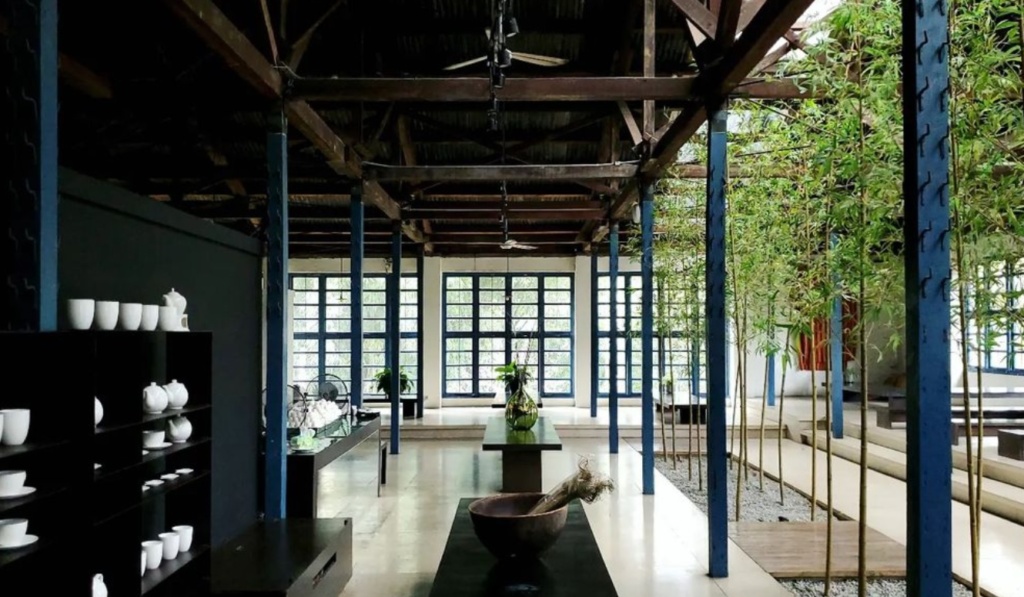



The tea farm itself is very nice and scenic, and there is a tour offered too, just make sure you book it in advance!
They’ll present how the farm was restarted, and how the founders believed in nature and organic farming.
Then followed by will be a demonstration about how tea leaves were picked and handled, together with the machines.
Really worth visiting to hear what they have to say about nature!
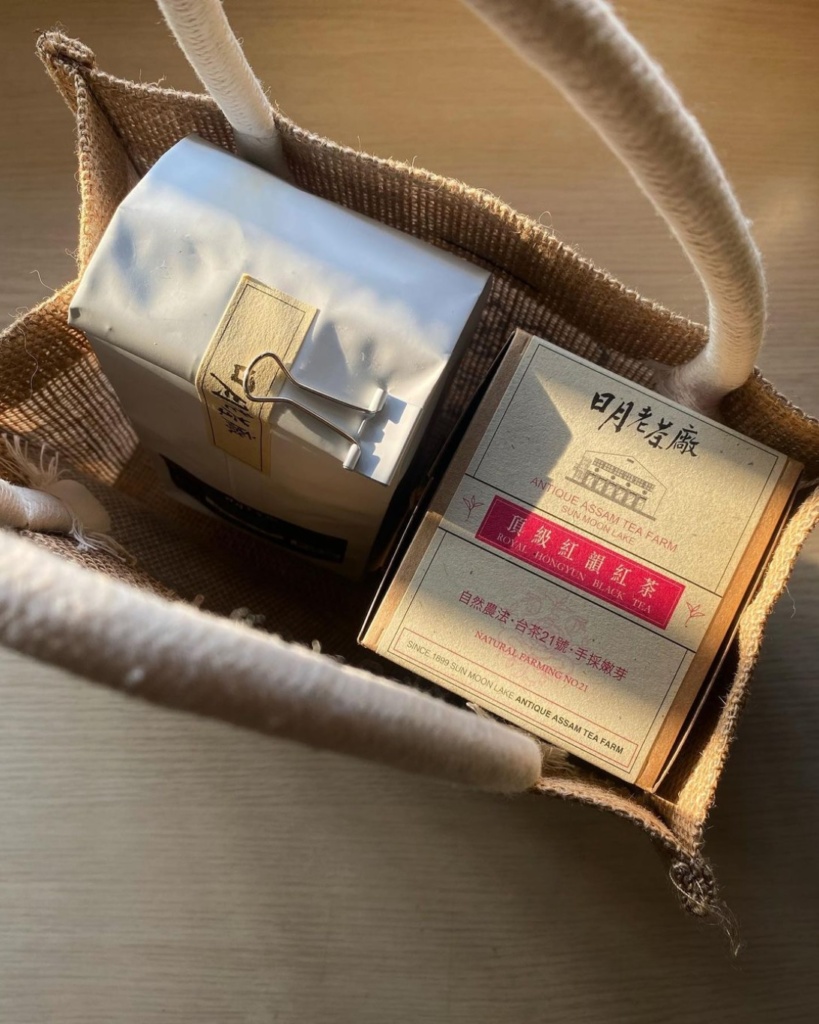

There are 2 star main products here, both are the hand-picked 1 core, 2 leaves, and with the shape of striped (手採1芯2葉 條索狀):
☝Shangpin Red Jade Black Tea-Taiwan Tea No.18 (尚品紅玉紅茶-台茶18號)
Brewed from Burmese Big Leaf (緬甸大葉種) and Taiwanese Wild Camellia (台灣野生山茶), the tea broth is bright and red, with natural cinnamon and light mint aroma, which has been praised by the world’s black tea experts as “Taiwan fragrance.”
✌ Assam Black Tea – Taiwan Tea No.8 (嚴選阿薩姆紅茶-台茶8號)
A single plant of Indian Assam Jaipuri retains the richness and sweetness of the original Assam, the broth is richer than Taiwan Tea No. 18 and has a more solid, full-bodied taste, and is more suitable to drink with milk or brown sugar.
The factory is also selling all kinds of tea, tea food (natural dried fruits, tea candies (茶糖), dried jujube cake, pumpkin seed cookies), coffee beans, local fruit Vinegar, jam, honey and other kinds of local specialities such as Tongluo Hangchu (銅鑼杭菊), Guanxi Xiancao Tea Bag (關西仙草茶包), Dye Free Sun and Moon Lake Mushroom (無染日月潭香菇), etc.
2⃣2⃣2⃣2⃣2⃣2⃣2⃣2⃣2⃣2⃣2⃣2⃣2⃣2⃣2⃣2⃣2⃣2⃣2⃣2⃣2⃣2⃣2⃣2⃣2⃣2⃣2⃣2⃣2⃣2⃣2⃣2⃣2⃣2⃣2⃣2⃣2⃣2⃣2⃣2⃣2⃣2⃣2⃣2⃣2⃣2⃣2⃣2⃣2⃣2⃣2⃣2⃣
Yoshan Tea 遊山茶訪茶文化館
Growing and Making Tea since 1880
📌 Zhushan Township, Nantou county, Taiwan (557台灣南投縣竹山鎮延平路19號)
💰 No entrance fee (They also have other shops in Taipei, Taoyuan, China, Japan, Korea, the USA and the UK)
🕔 09:00-17:30 daily

Yoshantea Tea Culture House used to be a discarded old factory, while now it has been given a new life in this spacious area.
Here you can explore the development of Taiwanese tea and learn about first-hand knowledge of Taiwanese tea production and category.
In addition, teapots and tea wares that Yoshantea has collected for years are also on display.

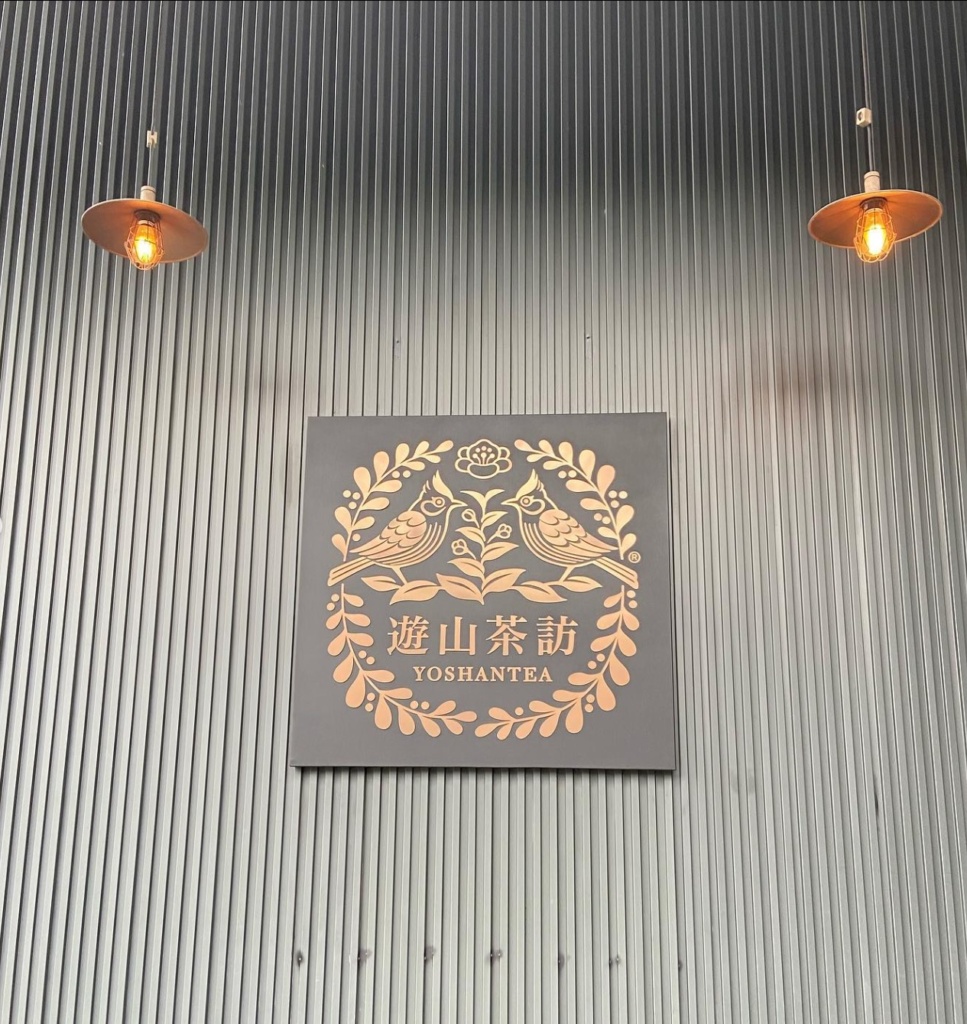

Some fun facts about Taiwanese tea:
Unlike wine in France, which has its standard for naming and labelling, to attract customers’ attention, many different names are often heard with the same tea in Taiwan and can always make confusion.
For example, Fresh Li Shan Oolong Tea might also be named Gao Leng Tea (High Cold Tea), Yun Wu Tea (Cloud and Fog Tea), and Shiue Shan Tea (Snow Mountain Tea).
However, basic name elements of tea may include its aroma, growing region, cultivar, method of processing and trade name.
For instance, the name of Dong Ding tea should be named correctly as Roasted Dong Ding Chin-Shin-Oolong Oolong Tea.
And for the trade names, there are, for example, Song Bo Chang Ching Tea (Pine Oolong) and High Mountain Tea are commonly seen.

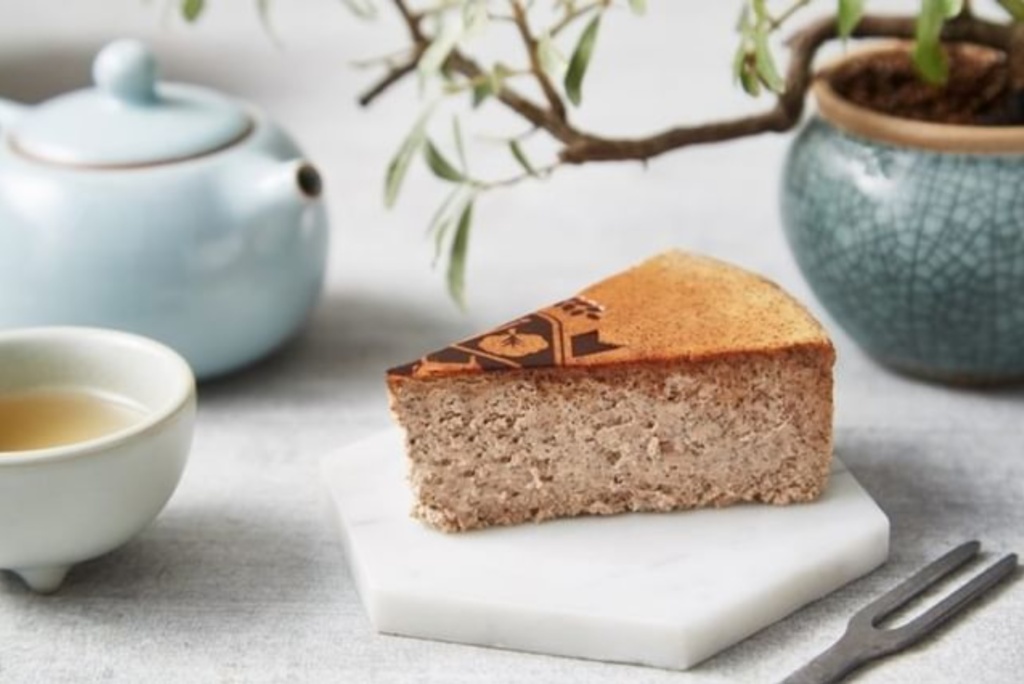
Back to the factory, the journey of Yoshan Tea can be read hand in hand with the history of Taiwanese Dong Ding oolong.
Oolong has been cultivated on Dong Ding Mountain as early as the mid-19th century when local villagers started harvesting “Qing Xin oolong” in preference to the native “wild tea”.
By this time, the Chen family of Yoshan Tea were already knee-deep in their exploration of Taiwanese oolong.
Taiwan’s tea industry continues its growth and evolution with the increasing appreciation from the youth and people with trendy lifestyles.
In 2014, Yoshan Tea remodelled its “Tea Culture House” museum to shorten the distance between people and tea, with a multilingual introduction to Taiwanese tea culture and enhanced quality of experience.



With its practices perfected in Taiwan, Dong Ding Oolong (凍頂烏龍) is one of the most renowned tea in Taiwan.
For hundreds of years, harvesting Dong Ding Oolong involved arduous treks across the region’s mountains and rivers.
A rising demand for such tea, coupled with a labour shortage, meant that tea producers had to streamline the process; a modern “standard tea production method” has since replaced what traditionally relied on experience and climate.
This new process gives the tea a leafy “high mountain” aroma, a result of insufficient fermentation of prematurely-picked leaves that is often mistaken for Dong Ding’s famed flavours.
What Yoshan Tea seeks is Dong Ding oolong’s true flavours—with those distinctive throat-cooling sweet notes so robust and unforgettable the flavours have been described “as an entering into one’s bones”.
Only by harvesting ripe tea leaves, letting them ferment sufficiently, and then roasting them for an appropriate amount of time does that full-bodied sweetness of Dong Ding Oolong come to the fore.

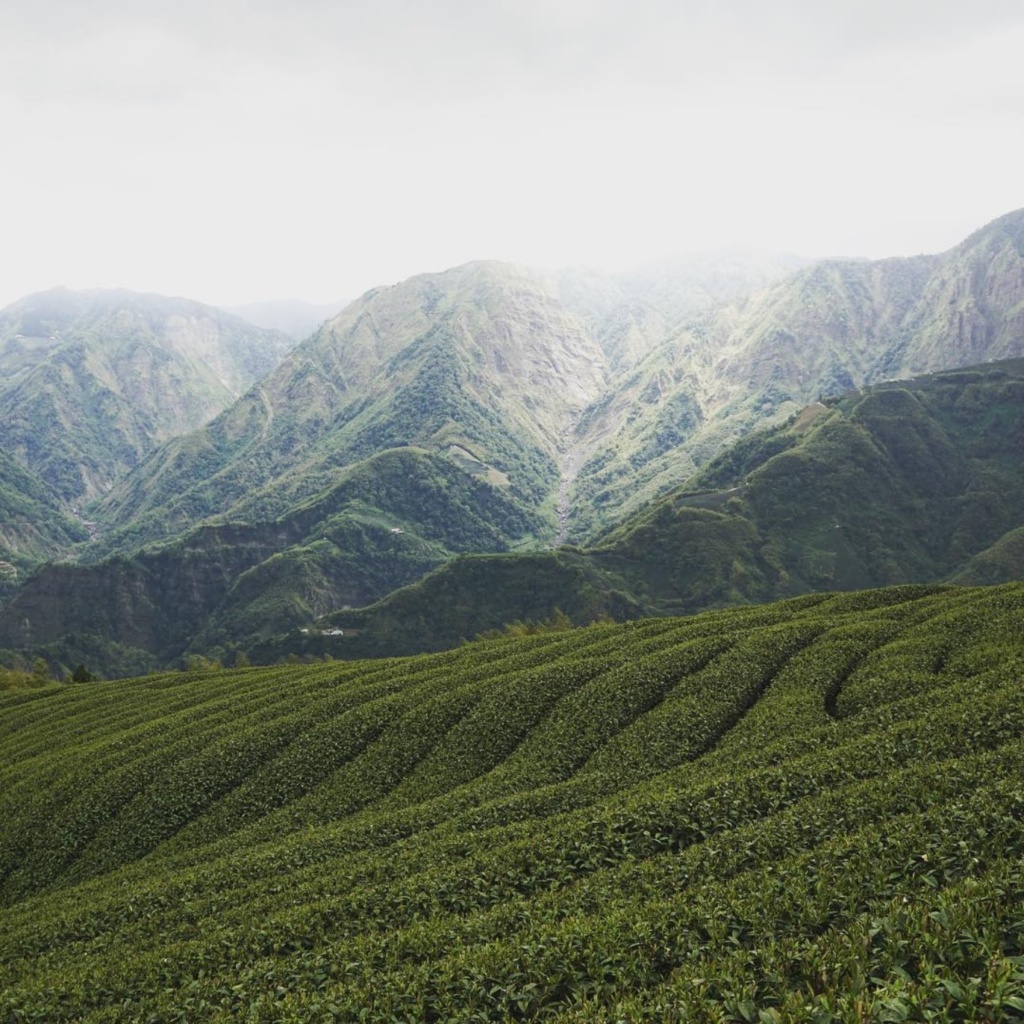
The factory is selling all kinds of tea from different places of origin.
Each place is a unique landscape with its local climatic characteristics seen through the rich and varied flavours of oolong tea.
Here are some products FYI:
ANNUAL SERIES
A selection of outstanding harvests from various tea regions, with teas are fermented and roasted according to their individual characters, and are sweet and pure.
This includes 2011 Aged Li Shan Oolong Tea (Taichung City, Taiwan), 2012 Aged Dong Ding Oolong Tea (Nantou County, Taiwan), etc.
CLASSIC SERIES
A collection of classic Taiwanese teas, including the perennial favourites.
This includes 810 Amber Muscatel Oolong Tea (Taichung City, Taiwan), 807 Li-Chih Oolong Tea (Taichung City, Taiwan), 809 Honey Gold Tea Bud (Hsinchu County, Taiwan), 802 Roasted Classic Dong Ding Oolong Tea (Nantou County, Taiwan), etc.
CONNOISSEUR SERIES
The much sought-after perfection is the Taiwanese oolong.
These teas are fresh, fragrant, and shine with a light, pure sweetness.
This includes 601 Fresh Li Shan Oolong Tea (Taichung City, Taiwan), 505 Fresh Jade Green Oolong Tea (Nantou County, Taiwan), etc.
YOSHAN SERIES
The embodiment of the art of Yoshan Tea, these teas are made according to tea-making traditions in Taiwan.
Tea leaves are fermented and roasted for smooth, full-bodied flavours.
This includes 503 Mild Jade Green Oolong Tea (Nantou County, Taiwan), 103 Mild Ali Shan Oolong Tea (Chiayi County, Taiwan), etc.
TERROIR SERIES
A selection from the most well-known tea mountains of Taiwan–a collection full of unique flavours,
ranging from sweet and mellow to full and robust. These teas can be enjoyed anytime, anywhere.
This includes 611 Fresh Li Shan Oolong Tea (Taichung City, Taiwan), 501 Fresh Jade Green Oolong Tea (Nantou County, Taiwan), etc.
Last but not least, they have a shop in Taipei and you can even experience making your own bubble tea from scratch!

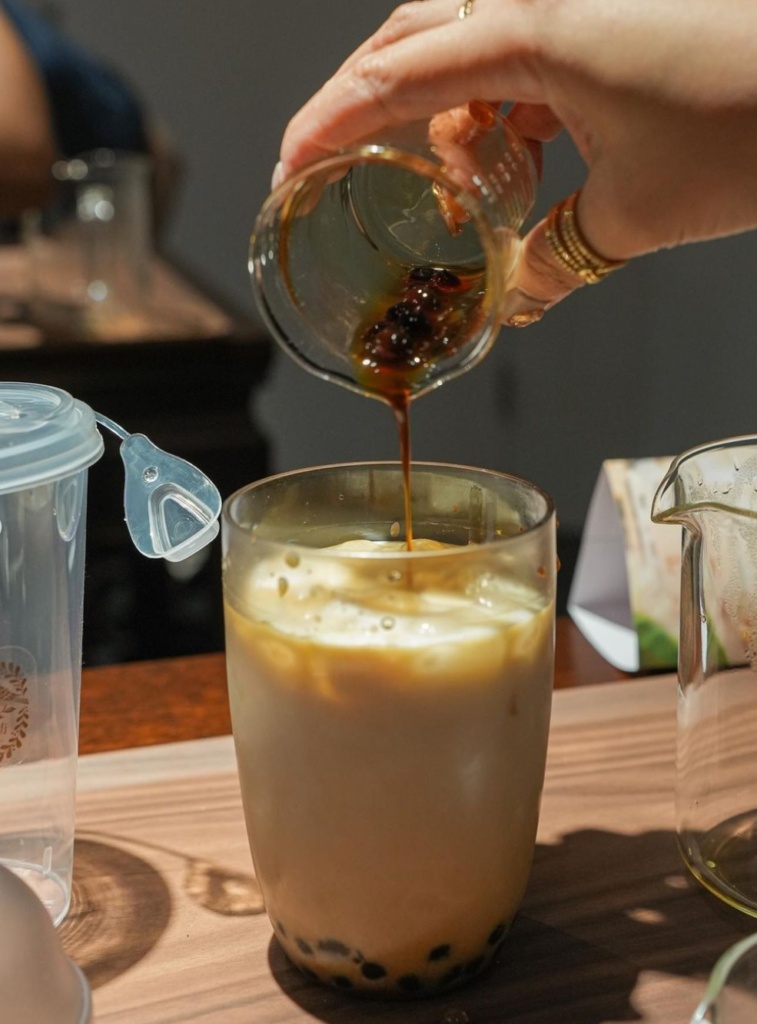
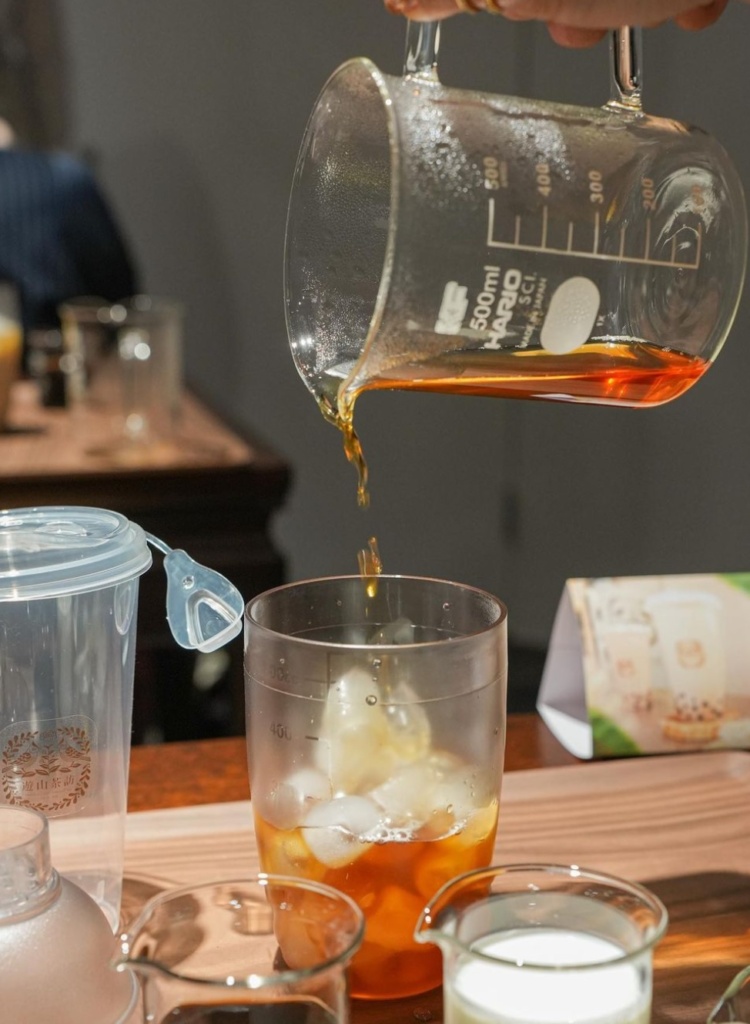

3⃣3⃣3⃣3⃣3⃣3⃣3⃣3⃣3⃣3⃣3⃣3⃣3⃣3⃣3⃣3⃣3⃣3⃣3⃣3⃣3⃣3⃣3⃣3⃣3⃣3⃣3⃣3⃣3⃣3⃣3⃣3⃣3⃣3⃣3⃣3⃣3⃣3⃣3⃣3⃣3⃣3⃣3⃣3⃣3⃣3⃣3⃣3⃣3⃣3⃣3⃣3⃣
Daxi Tea Factory 大溪老茶廠
Re-interpretation of the Tea Garden Good Old Times
📌 Daxi district, Taoyuan city, Taiwan (335台灣桃園市大溪區復興路二段732巷80號)
🔎 Daxi Tea Factory 大溪老茶廠 website
💰 Factory Visit Ticket NTD$100/person (redeemable for the purchases of all items)
🕔 09:30-17:00 daily

The Daxi Tea Factory built in 1926 covers an area of 1,670 square feet, and was formerly named the “Jiaoban Mountain Factory.”
Taiwanese tea was prosperous during that time and was regarded as “black gold.”
To meet the huge demand for export, the old tea factory operated with three shifts and machines running around the clock, of which the annual output reached as much as 600 gross tons.
A fire in 1956 destroyed most of the factory. But as luck would have it, on his way to his mansion on Jiaoban Mountain, the former President, Chiang Kai-shek, found that the tea factory he was familiar with was gone, he then assisted in reconstructing the factory and this precious piece of historical heritage has been preserved until now.
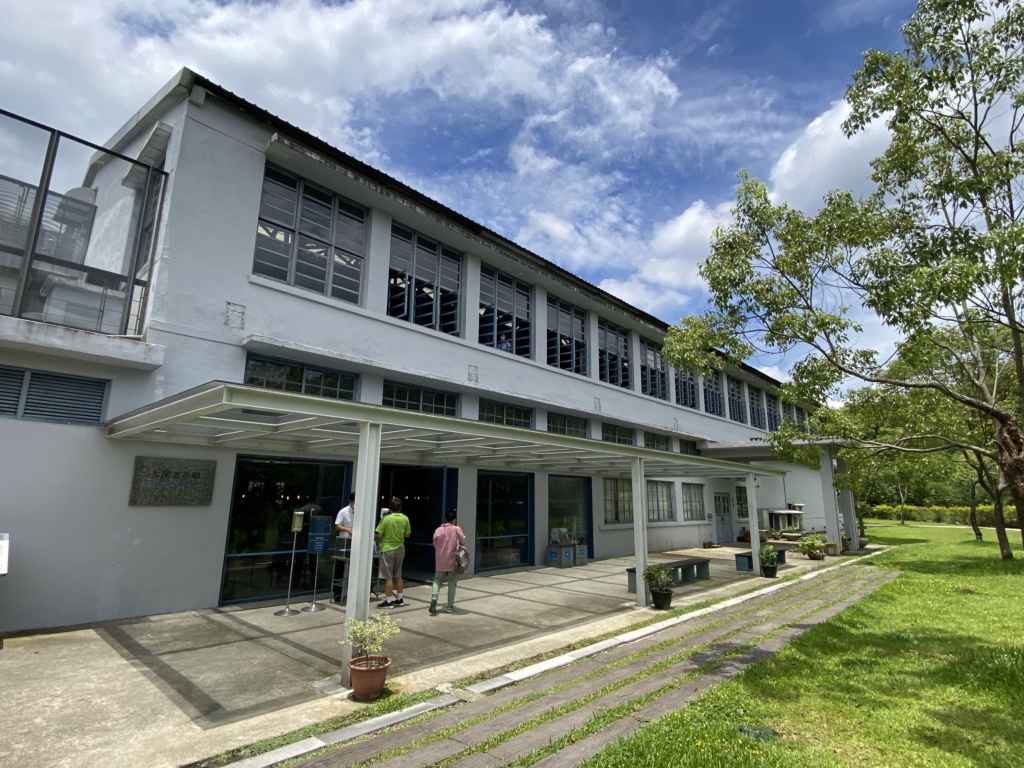
The 1F has been designed as a tea sales and production area, a film screening room and a tea bookstore.
The first thing that strikes the eye is the minimalist design of the product demonstrating area, which sells products from agricultural and forestry-related companies.

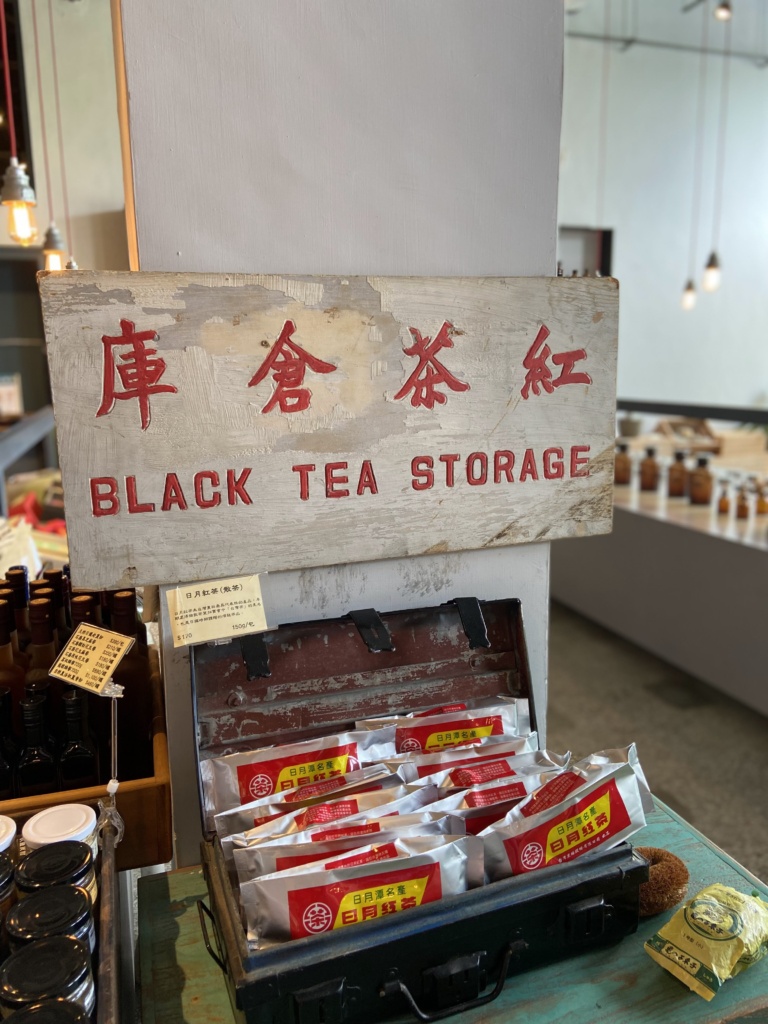

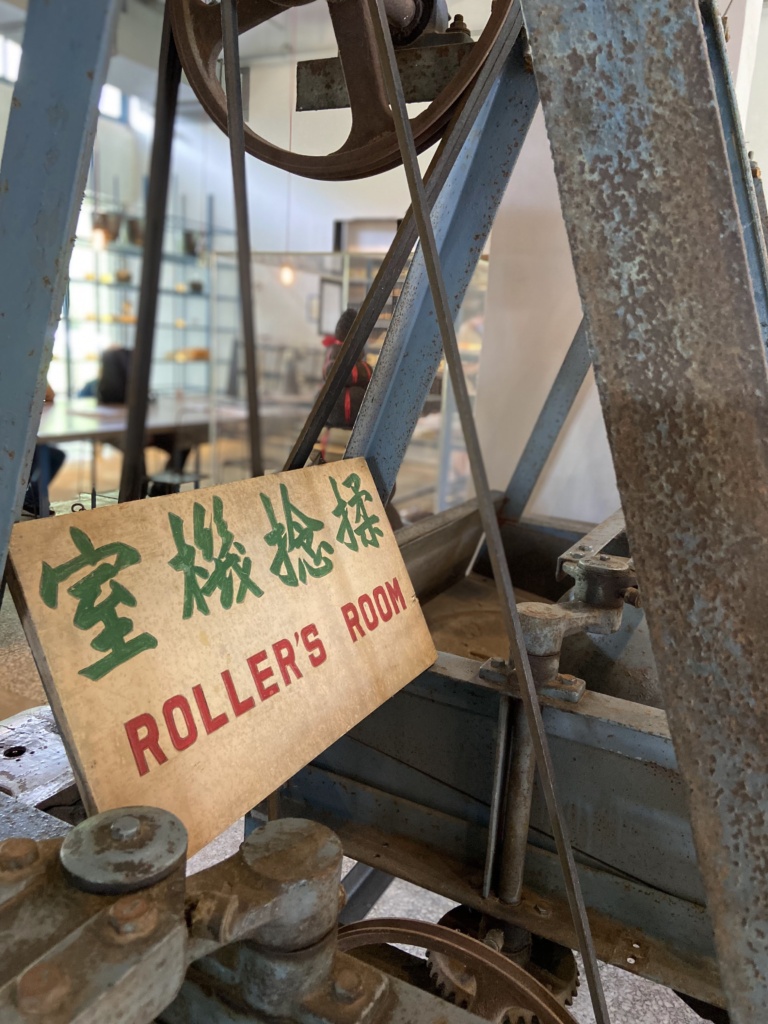
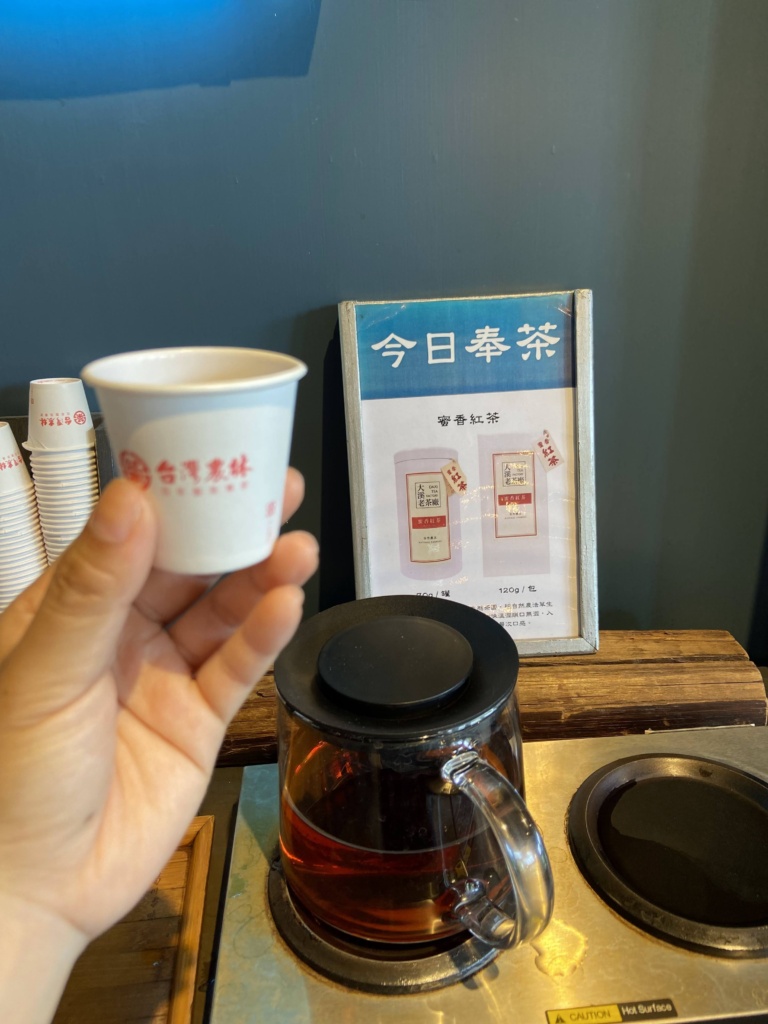
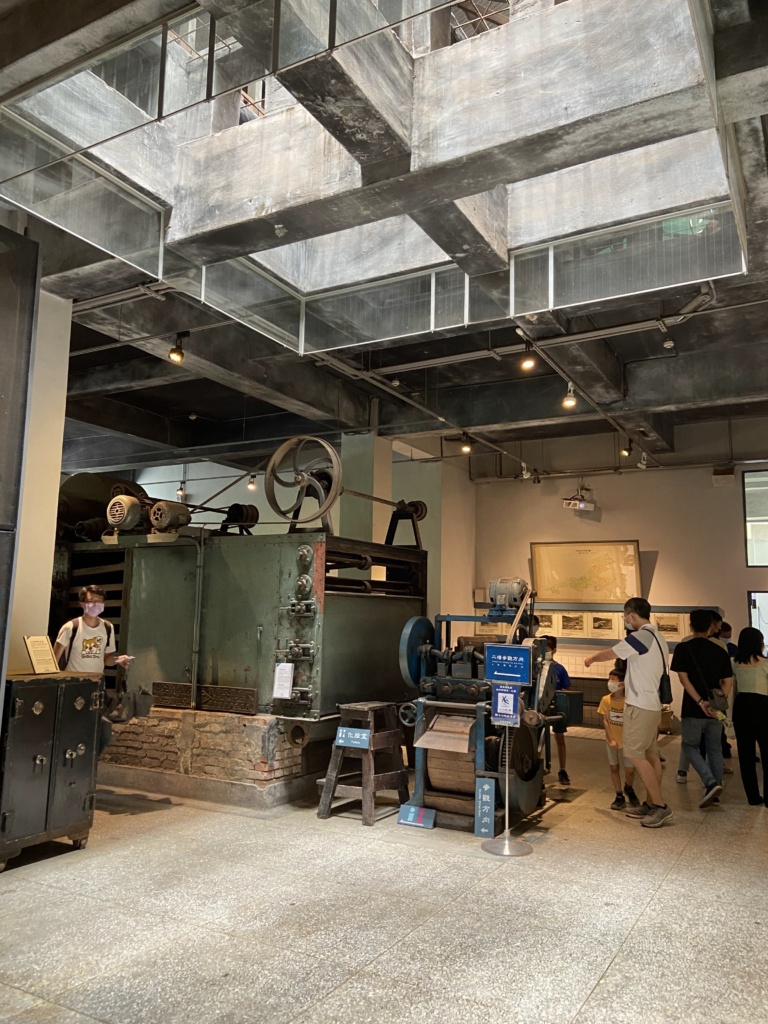
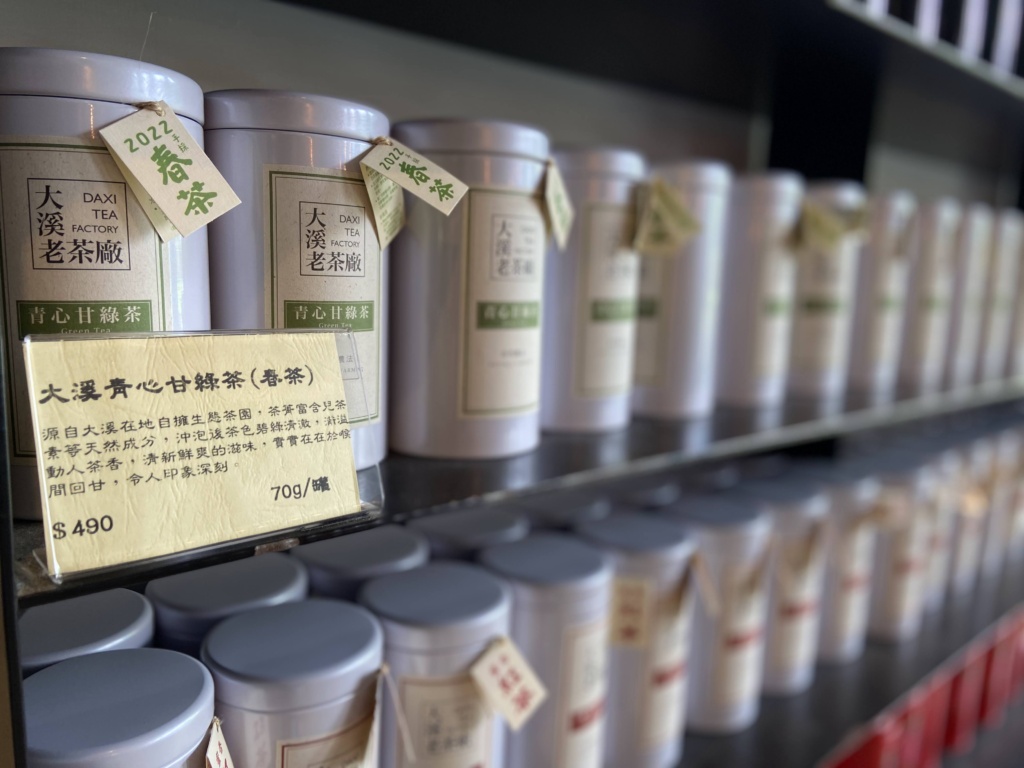
On the other side is a display of old tea-making machinery, also a new tea-making area nowadays due to small quantities of tea still being produced in the tea factory.
Fans are located on each of the north and south-facing walls to provide adequate airflow in the wilting area, and windows are lined up on both sides for ventilation.
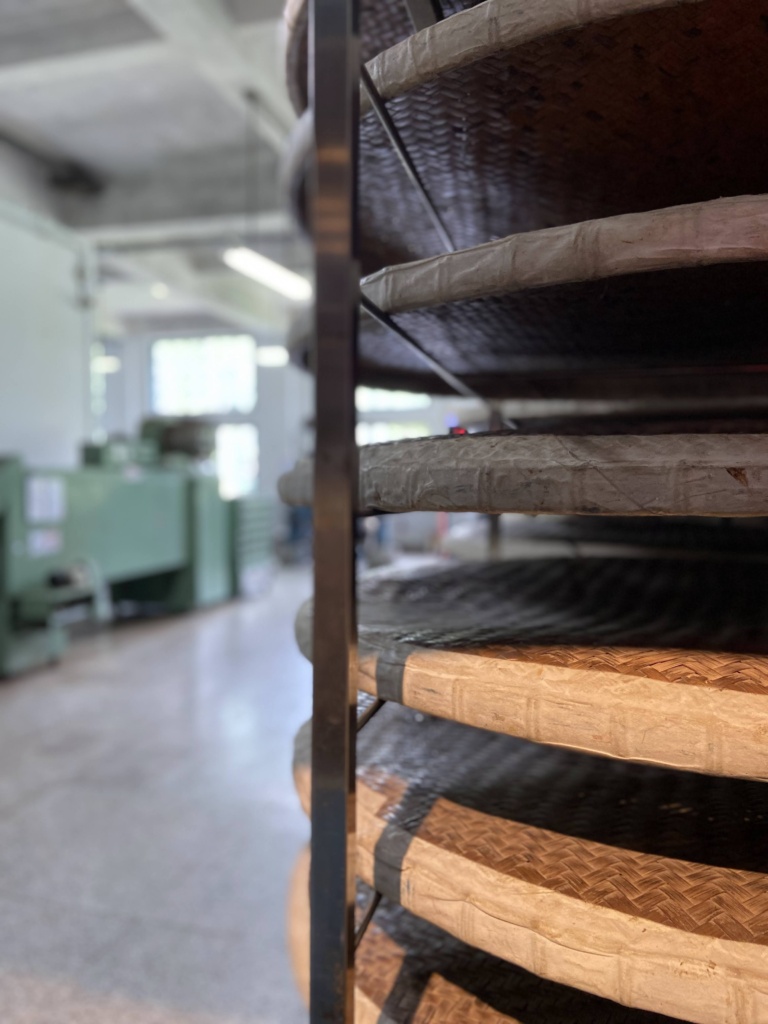
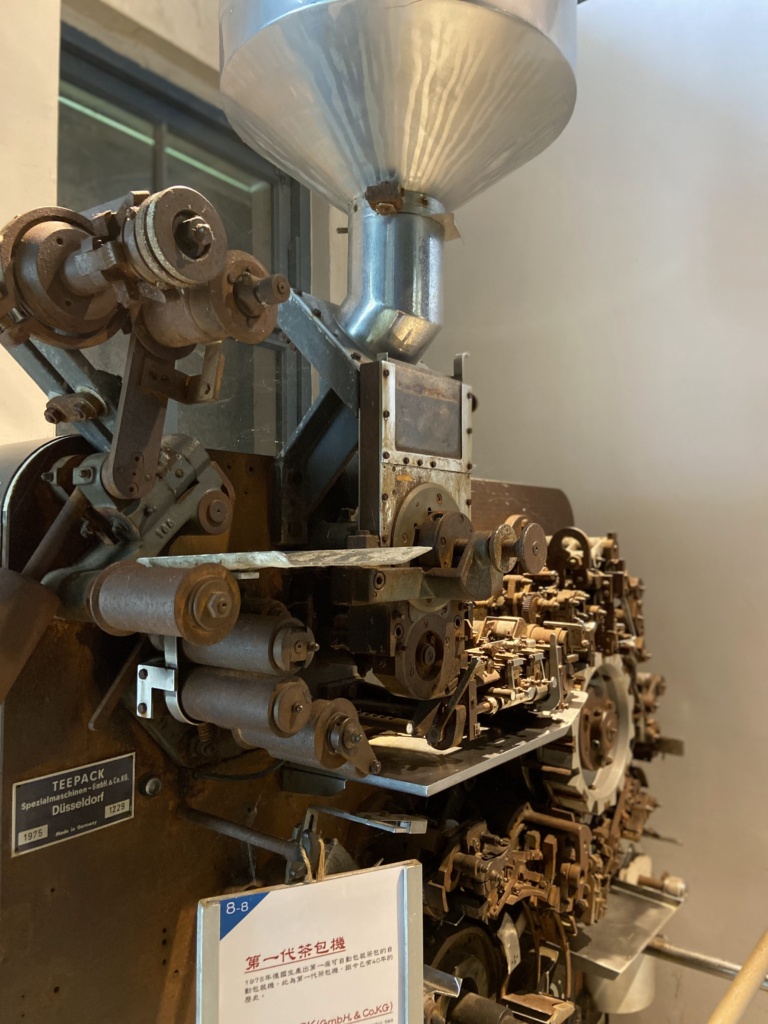

The cells of the tea tissues are crumpled through rolling using the mechanical friction of the machine, and the sap flows out and attaches to the tea leaf surface for ease of brewing.
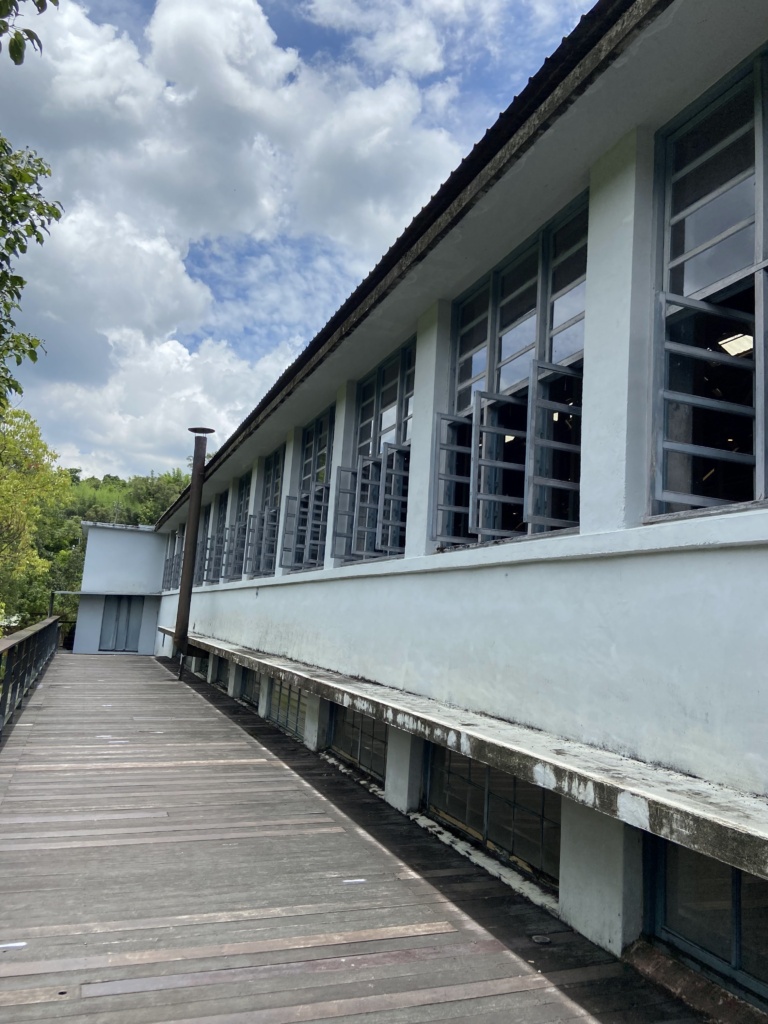

2F is a worthwhile visit and is the architectural highlight of the factory.
With 151 vertically and horizontally intertwined diffusion frames, the interactive support of the mechanical structure is a crystallisation of the wisdom of previous generations.

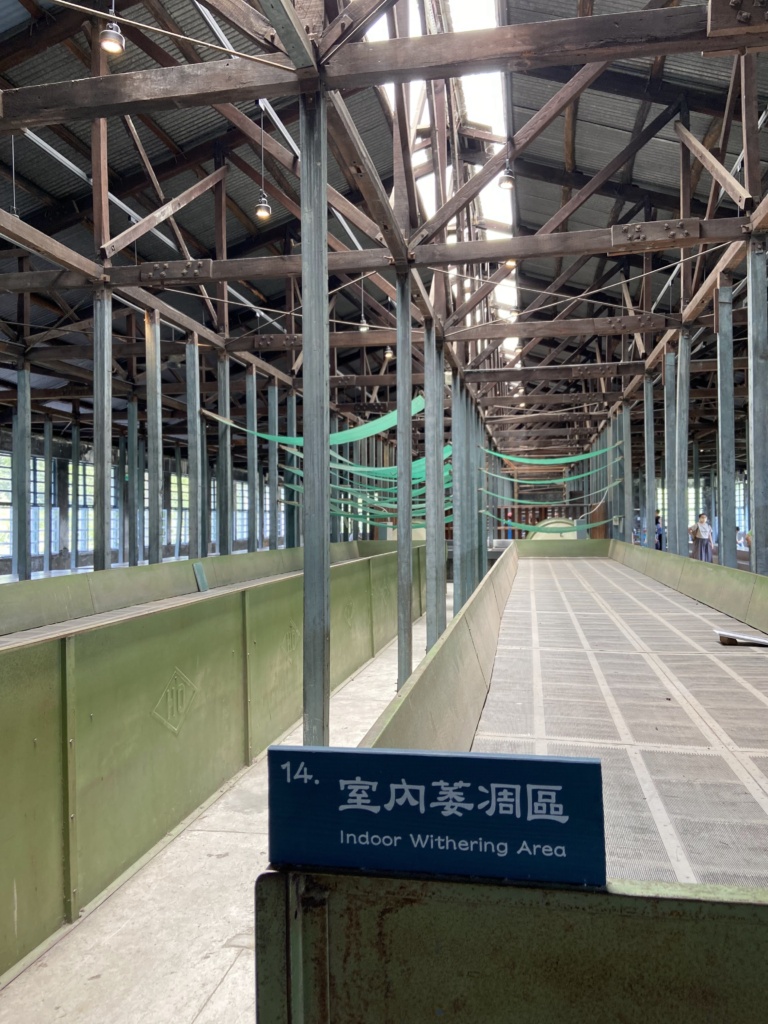
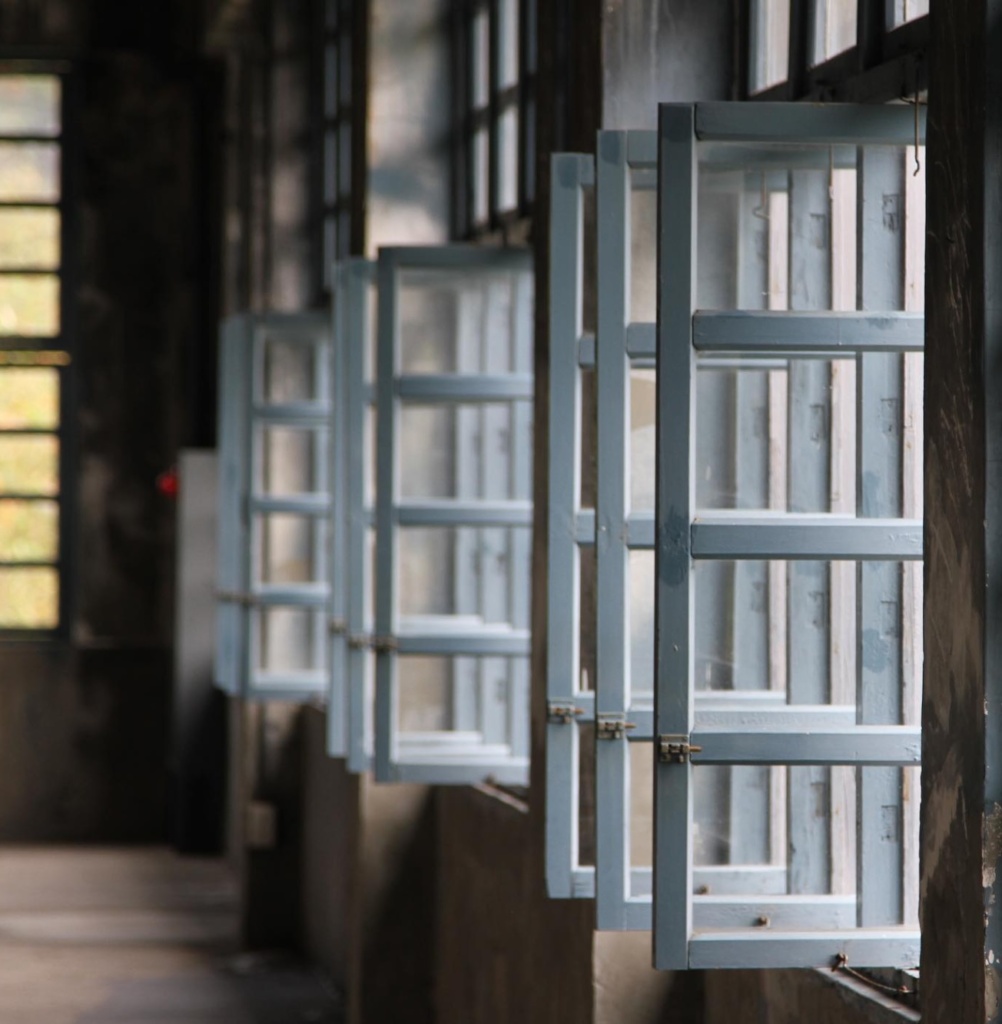
Photo licensed from Bay
Tea Withering Nets at 2F are suspended from the truss.
By spreading the tea leaves evenly on the net, the flowing air facilitates the evaporation of excessive moisture in the tea leaves.
Also, the macerated leaves are more resilient to breakages when they are handled in successive procedures, as the leaves continue to dry out, the aroma of tea becomes ever more vibrant.
Old Blue Cypress Window Bar, on the other hand, can be rotated at a 90-degree angle for opening, was installed to speed up the tea leaf withering process by guiding the airflow into the room, and emitting a large amount of heated air with the help of the large exhaust fans, achieving improved leaf withering efficiency.

The red bricks of the Japanese Colonial Period carry an evocative sentiment of the bygone days.
Important! Don’t miss the regular tours on weekdays and holidays: 11:00 and 14:30 (2 sessions)!
4⃣4⃣4⃣4⃣4⃣4⃣4⃣4⃣4⃣4⃣4⃣4⃣4⃣4⃣4⃣4⃣4⃣4⃣4⃣4⃣4⃣4⃣4⃣4⃣4⃣4⃣4⃣4⃣4⃣4⃣4⃣4⃣4⃣4⃣4⃣4⃣4⃣4⃣4⃣4⃣4⃣4⃣4⃣4⃣4⃣4⃣4⃣4⃣4⃣4⃣4⃣4⃣
Hugosum Black Tea Shop 和菓森林紅茶莊園
DIY Course / Tea Vending / Afternoon Tea
📌 Yuchi Township, Nantou county, Taiwan (555台灣南投縣魚池鄉香茶巷5號)
💰 No entrance fee
🕔 09:00-17:30 daily

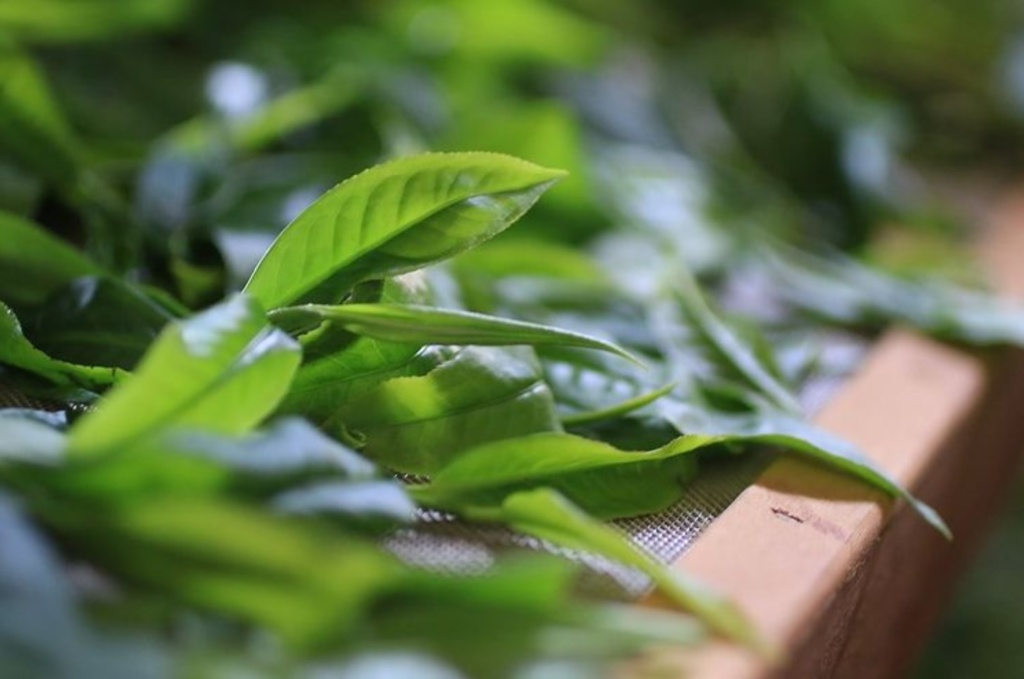
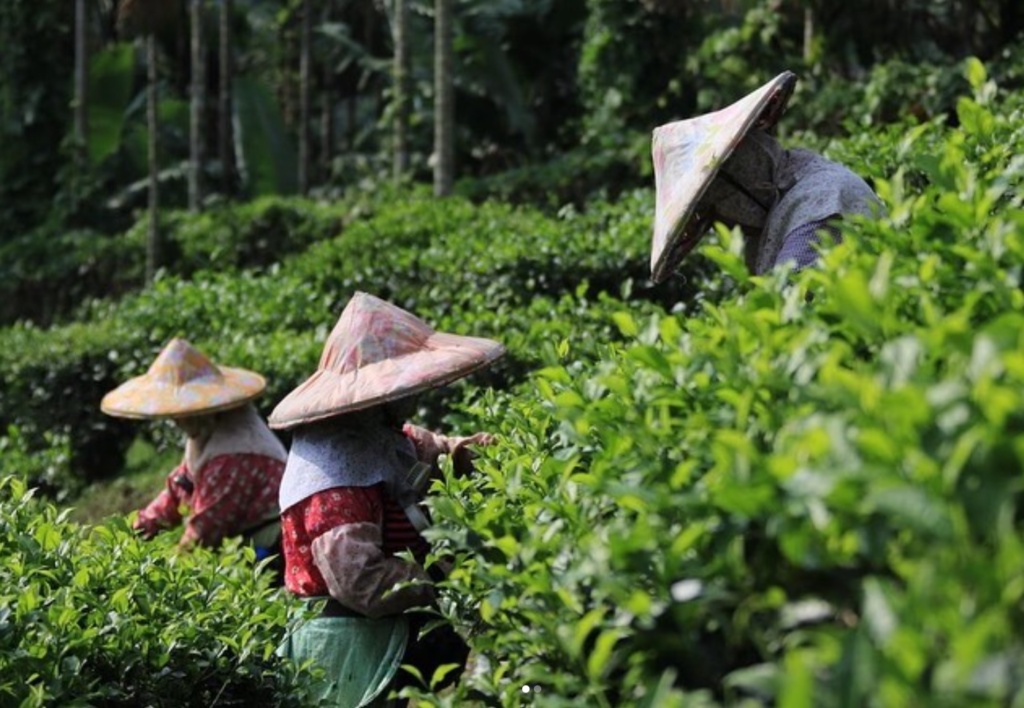
Chi-Mu Black Tea Factory (持木紅茶廠) in Yuchi was established by the Japanese to produce black tea.
Mr Shih Chao Xin (石朝幸), who graduated from Taiwan Tea Industry Transmitting Institute (茶業傳習所), managed the factory since 1949.
Mr Shih persisted in black tea cultivation, even when others made a fortune by growing betel-nut palms, he still believed that black tea would come into the spotlight again.
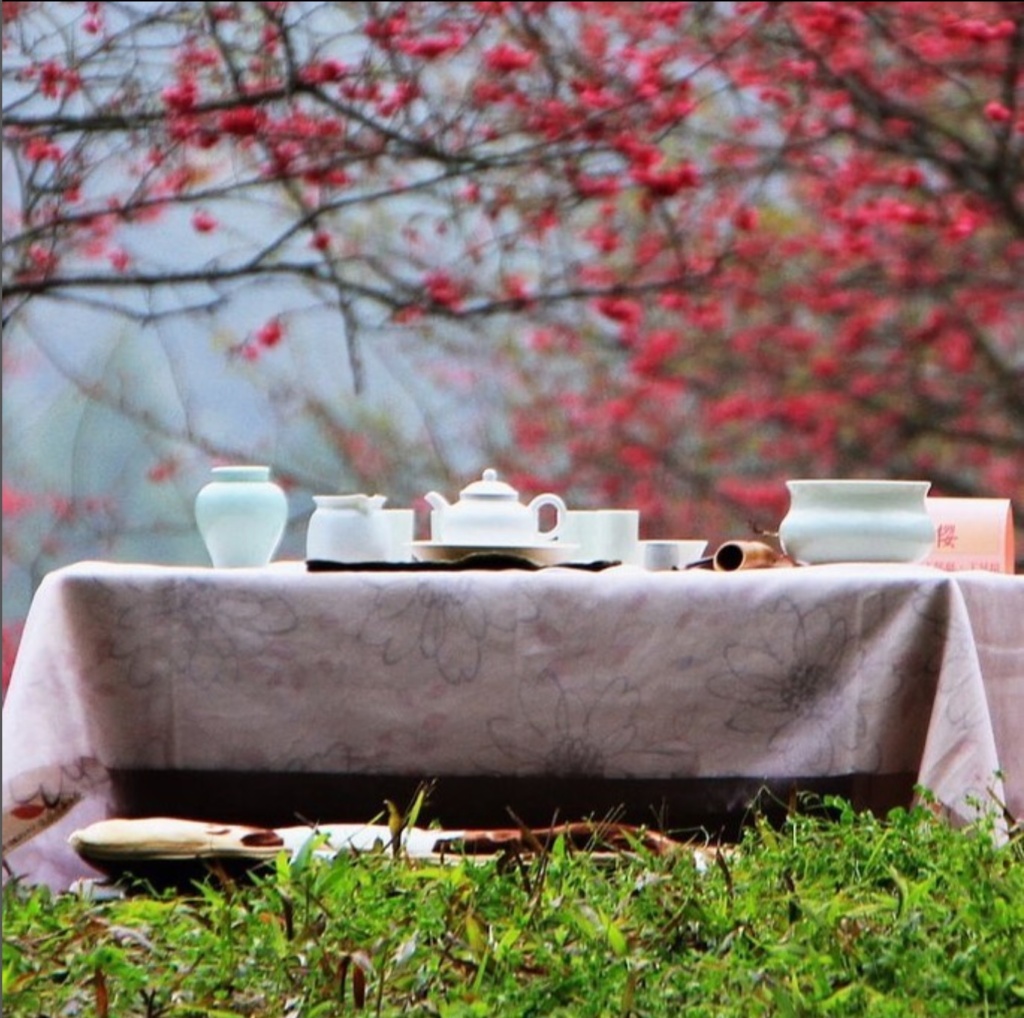
The second generation now is inheriting spirits and tea-making technology.
In 2005, the tourism tea factory- Hugosum Black Tea Garden was established.
The shop not only devotes itself to making good tea but is also determined to promote Taiwan’s black tea culture.
In addition to educating the customers on the black tea industry knowledge, Hugosum promotes local culture as well as Taiwan’s black tea culture and ultimately shows the world The Renaissance of Taiwan’s black tea.

5⃣5⃣5⃣5⃣5⃣5⃣5⃣5⃣5⃣5⃣5⃣5⃣5⃣5⃣5⃣5⃣5⃣5⃣5⃣5⃣5⃣5⃣5⃣5⃣5⃣5⃣5⃣5⃣5⃣5⃣5⃣5⃣5⃣5⃣5⃣5⃣5⃣5⃣5⃣5⃣5⃣5⃣5⃣5⃣5⃣5⃣5⃣5⃣5⃣5⃣5⃣5⃣
Hohocha 喝喝茶丨台灣香日月潭紅茶廠
The Biggest Black Tea Tourism Factory in Taiwan
📌 Yuchi Township, Nantou county, Taiwan (555台灣南投縣魚池鄉魚池街443-36號)
🔎 HOHOCHA喝喝茶丨台灣香日月潭紅茶廠 Website
💰 NTD$70/ person
🕔 09:00-17:15 weekdays, 09:00-17:45 weekends

This tea tourism factory is most famous for its free cuppa tea & tea leaf eggs (奉茶奉蛋體驗)!
They offer one free experience per person per day with tea and the popular black tea leaf egg tasting daily!
Due to limited space and in order to provide a comfortable and quiet environment, they are not open to groups (including student groups) by appointment.
Hours: Monday to Friday 09:00 to 17:00; Saturday, Sunday and national holidays 09:00 to 17:30
And remember to queue up from the back of the factory to the 3rd-floor experience area.

Stories behind the brand…
In the early 20th century, the Japanese introduced Indian Assam and other black tea varieties to the area, giving it a sweet and rounded flavour.
To become tea tasters, Wang’s brother learned the tea themselves started from scratch and established the tea factory.
Until now, the brand was awarded the “2019 Star Tea Factory Assessment 5 Star Grade”.
They’ve been combining cultural creativity and tourism to promote tea culture since then.
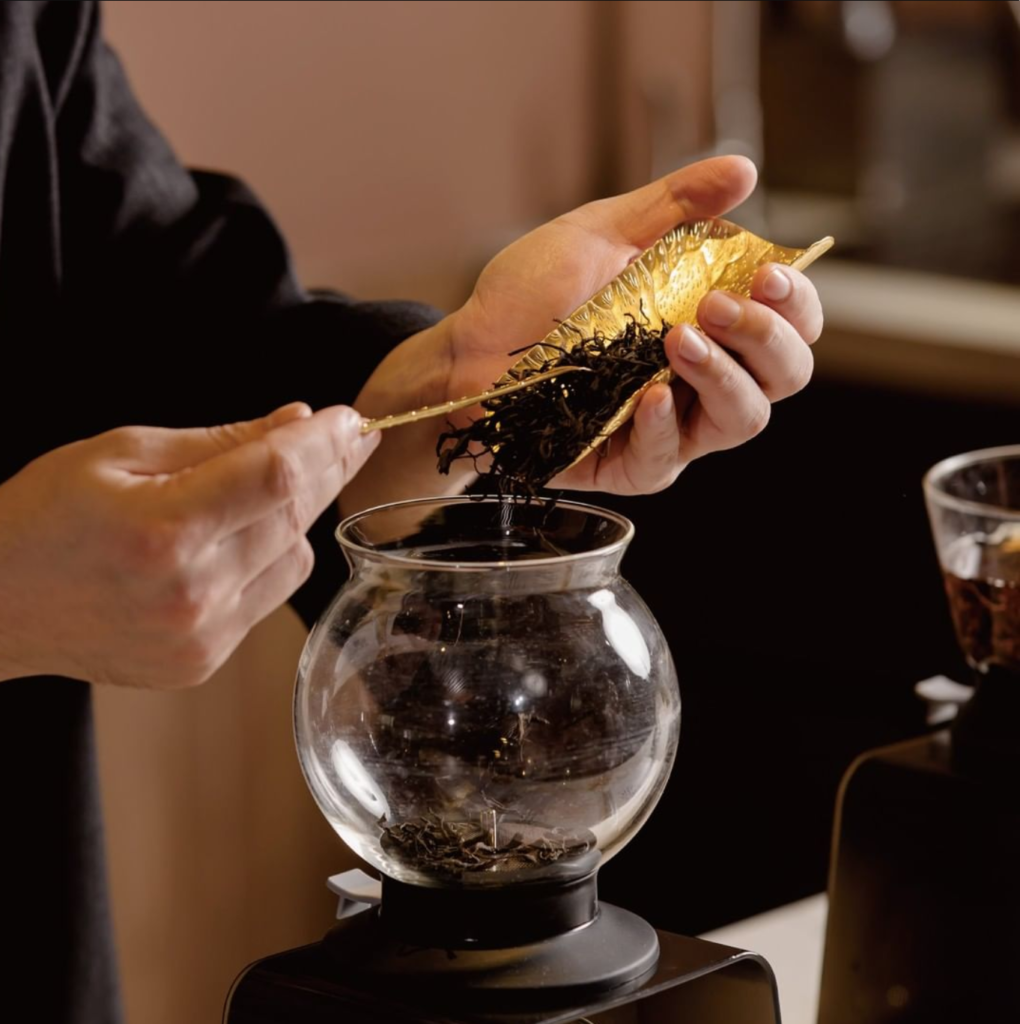

Tea-drinking culture has been cultivating the local area for many years.
Through contractual agreements, HOHOCHA has been working with small farmers in the Yuchi township to ensure that their hard work is paid off and to grow together with them to protect and promote the black tea culture in the Sun Moon Lake area in Nantou.
The tea factory offers tea lovers 7 kinds of tea experiences:
- 💁♀️Tea & Egg Tasting Experience (奉茶奉蛋體驗):
Mentioned previously - 💁♂️Free Guided Tour Service (導覽服務):
Conducted by professional tour guides, you’ll be shown around the largest tea factory in Taiwan, and get to know the professional tea tasters, the ISO-certified factories and SGS inspection standards.
Weekdays: 10:30, 13:30, 15:00; Holidays: 10:30
Length of tour: 15-20 minutes.
No registration is required, meet in front of the beverage bar on the ground floor (tour times are subject to change)
Professional tours can be booked for 8 or more people at $30 per person, without waiting to get the free cup of tea and a tea leaf egg. - 💁♀️Black Tea Pizza DIY (紅茶披薩DIY):
Enjoy the unique black tea pizza baked with your own hands! The activity is suitable for parents and children.
Duration: 30-40 minutes.
Book the activity online or call 049-2899996
Regular classes at 12:30 on Saturdays, Sundays and long holidays
Programme fee: $250 per person.
Remember to arrive at least half an hour before to collect your tickets from the Business Office (業務所). - 💁♂️Tea-rubbing Activity (揉茶體驗):
Make your own black tea and experience the process of tea leaves changing process in your hands!
The final product can be taken home and enjoyed as a brew or as a gift for friends!
Duration: 30-40 minutes.
Programme fee: $350 per person. - 💁♀️Tea Blending Experience (混茶體驗):
Each Sun Moon Lake black tea has its own unique aroma and flavour, mix them with your own idea to suit your preference!
Duration: 30-40 minutes
To register, please leave a message with your name, phone number, number of people and date or call 049-2899996
Please book early to reserve your place.
Classes will only be open with 8 or more people.
Course fee: $650 per person - 💁♂️Tea Sealing Experience (封茶體驗):
Sealed the tea leaves with a dream, a wish or a blessing and stamped them with a seal then stored for years.
Duration: 30-40 minutes.
To register, please leave a message with your name, phone number, number of people and date or call 049-2899996
Please book early to reserve your place.
Classes will only be open with 8 or more people.
Course fee: $1200 per person - 💁♀️Golden Tea Tasting (黃金品茗):
The event will be led by a professional tea taster who will make you feel like a tea taster for a day!
You’ll experience the five senses of tea (sight, smell, taste, touch and hearing) and also have a better understanding of the profound culture of Sun Moon Lake black tea.
Duration: 30-40 minutes.
To register, please leave your name, phone number, number of participants and date in a private message or call 049-2899996.
Please book early to reserve your place.
Classes will only be open with 8 or more people.
Course fee: $300 per person

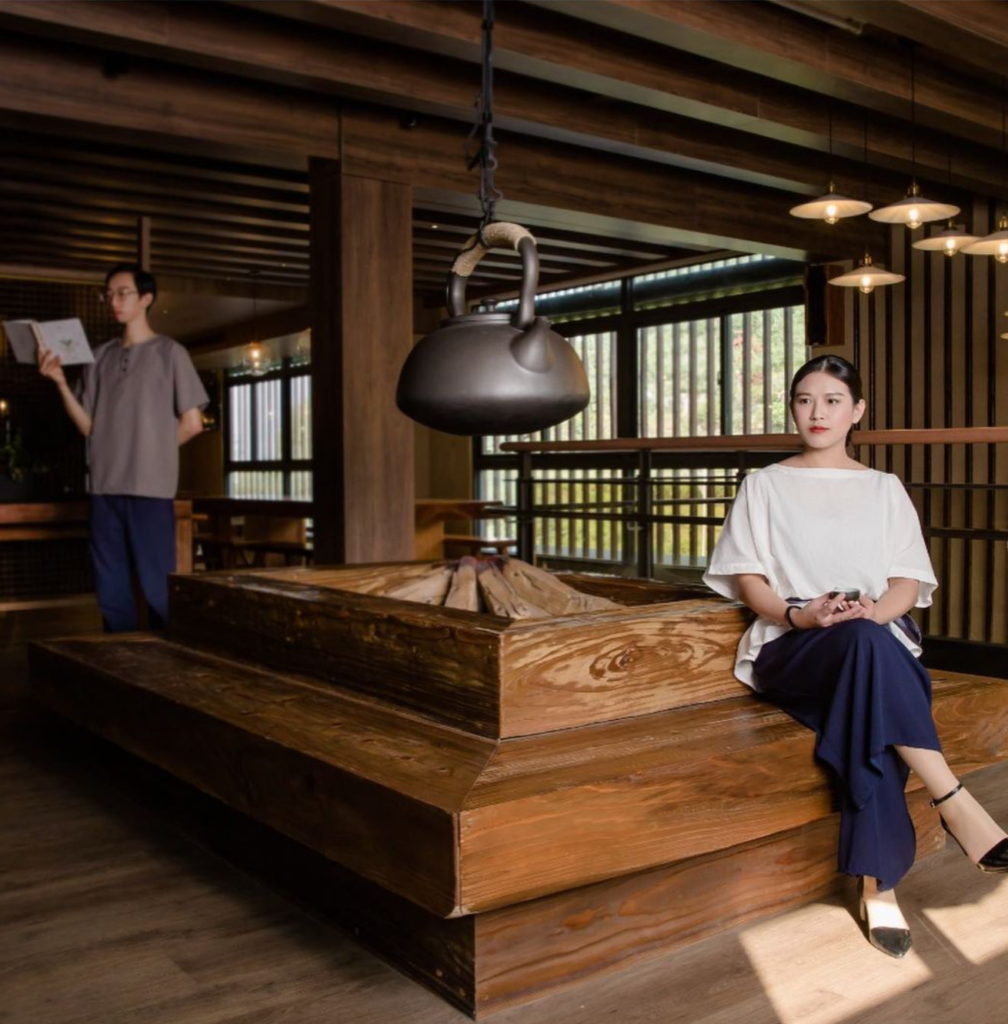

6⃣6⃣6⃣6⃣6⃣6⃣6⃣6⃣6⃣6⃣6⃣6⃣6⃣6⃣6⃣6⃣6⃣6⃣6⃣6⃣6⃣6⃣6⃣6⃣6⃣6⃣6⃣6⃣6⃣6⃣6⃣6⃣6⃣6⃣6⃣6⃣6⃣6⃣6⃣6⃣6⃣6⃣6⃣6⃣6⃣6⃣6⃣6⃣6⃣6⃣6⃣6⃣
Xiong Kong Tea Garten 熊空茶園
A Zen Atmospheric Tea Garten
📌 Sanxia District, New Taipei City, Taiwan (237台灣新北市三峽區竹崙路238號)
💰 NTD$100/person (redeemable for the purchases of all items)
🕔 09:00-17:00 daily

Located about 40 minutes from the hustle and bustle of Taipei, Xiong Kong Tea Garten situated in the mountains of the Sanxia in New Taipei City.
Covering an area of 168 hectares and 700 metres above sea level, the organic tea plantations and lush green mountains and valleys attracts tourists around the country.
Every tea tree here grows naturally without chemical fertilizers or pesticides.
Instead of mechanisation, the plantations here take the method of humanitarian, from planting, fertilising, weeding and pest control to harvesting and tea production.
Because of the organic cultivation, Xiong Kong Tea Garten not only retains the beauty of the original mountains and forests, but also produce the most natural and healthy crops – organic Biluochun green tea (有機碧螺春綠茶), organic Oolong tea (有機烏龍茶) and organic honey-scented black tea (有機蜜香紅茶). Furthermore, they are not only pure in quality but are also organic-certified (慈心有機驗證).


There are several other must-see spots in the area besides the Organic Tea Plantation.
This includes the Cherry Blossom Forest, the Maple Forest Road, the coffee hut, the Observation deck, the Willow Grove Trail, and the visitor centre.
For the Cherry Blossom Forest, during the season, there will be over 1,500 Fuji and Yoshino cherry trees (富士櫻和吉野櫻) blooming with pink and white flowers.
For the Maple Forest Road, the maple leaves change from green to orange to red in December and January, making the trail romantic in all seasons.
For the coffee hut, enjoy a cup of Sun Moon Lake Lu Kao coffee (日月潭鹿篙咖啡) produced by the company itself!
For the Observation deck, the outdoor dining and sitting area offers a panoramic view of Guanyin Mountain (觀音山), the Sanxia district, Yingge district and other areas on a clear day!
For the Willow Grove Trail, there are about 1,000 trees, all over 30 years old. The forest is a place where you can enjoy the sunshine and the birds chirp.
For the visitor centre, it mainly sells self-produced organic tea and products. Meals and tea are also offered here.


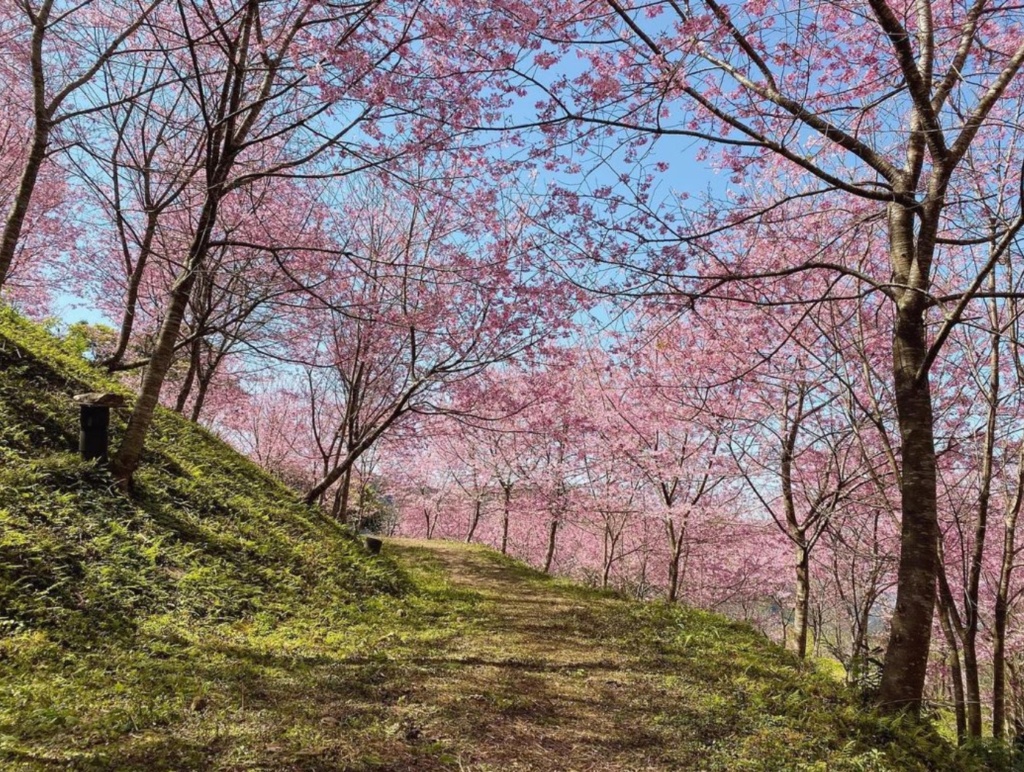
That’s all!
Pick out a suitable tea factory based on your route or preferences in Taiwan!

7⃣7⃣7⃣7⃣7⃣7⃣7⃣7⃣7⃣7⃣7⃣7⃣7⃣7⃣7⃣7⃣7⃣7⃣7⃣7⃣7⃣7⃣7⃣7⃣7⃣7⃣7⃣7⃣7⃣7⃣7⃣7⃣7⃣7⃣7⃣7⃣7⃣7⃣7⃣7⃣7⃣7⃣7⃣7⃣7⃣7⃣7⃣7⃣7⃣7⃣7⃣7⃣
TongLuo Tea Factory 台灣農林銅鑼茶廠
An Ecologically Sustainable Tea Plantation
📌 TungLuo Township, Miaoli County, Taiwan (苗栗縣銅鑼鄉九湖村九湖132-16號)
🔎 TongLuo Tea Factory 銅鑼茶廠 Website
💰 Factory Visit Ticket NTD$100/person (redeemable for the purchases of all items)
🕔 09:30-17:00 daily




The main tea products of Tongluo Tea Factory are Oriental Beauty Tea, Honey Scented Black Tea, Mellow Green Tea and Oolong Tea.
Nevertheless, the oriental Beauty tea is the most representative of the region!

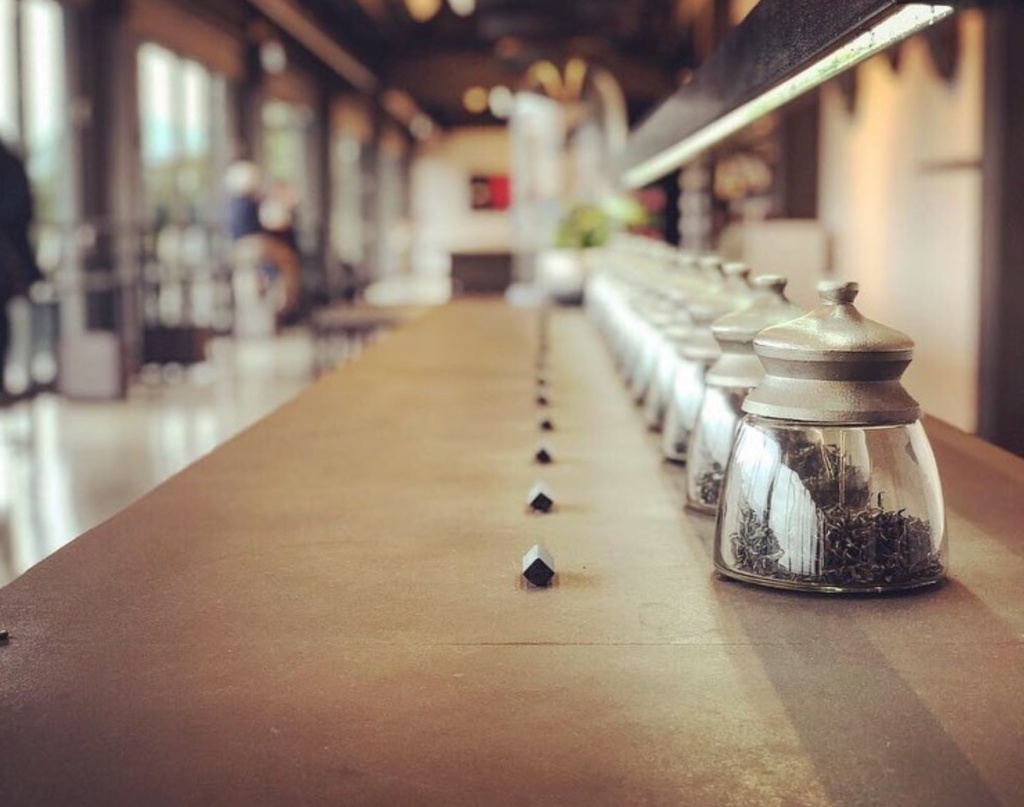
TongLuo Tea Factory is one of the five tea factories that belong to Taiwan Tea Corporation (TTC).
The plantation locates on the Miaoli hilly terrace with acidic clay red soil, with the high humidity and the large temperature difference between day and night, the tea leaves here are thick and with a rich aroma.
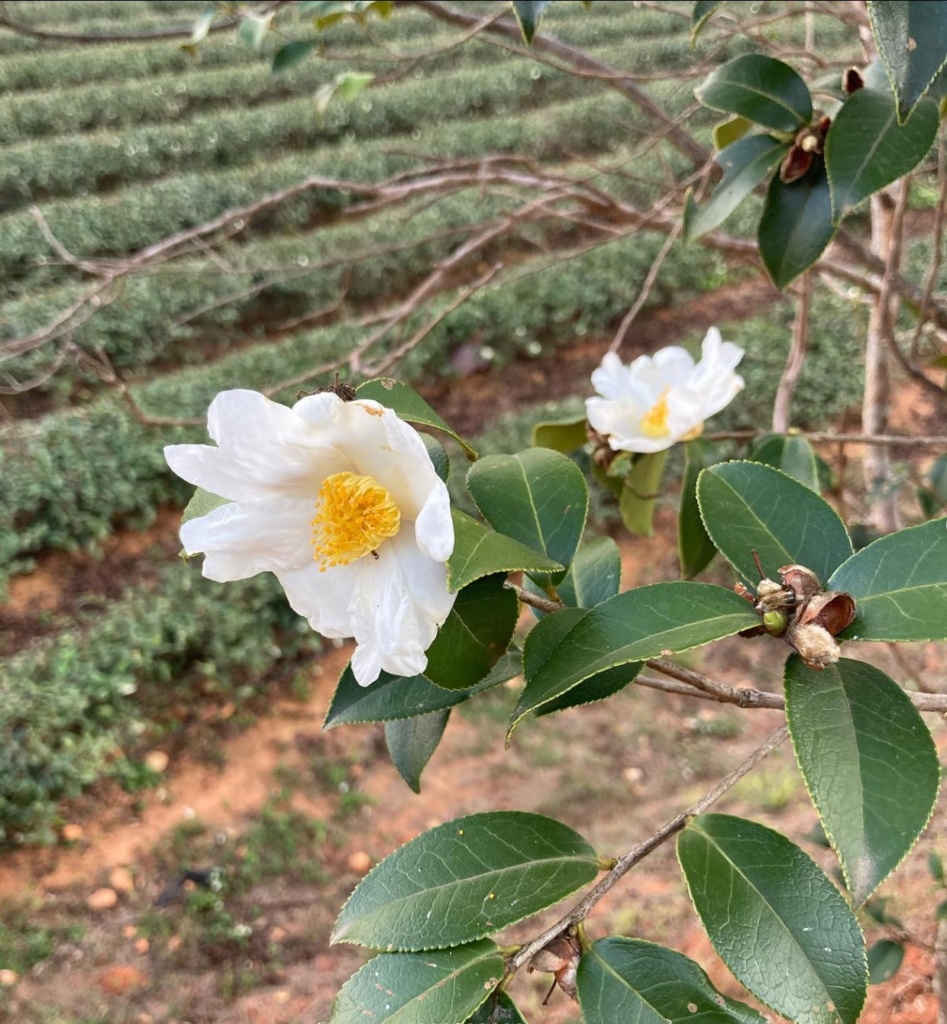


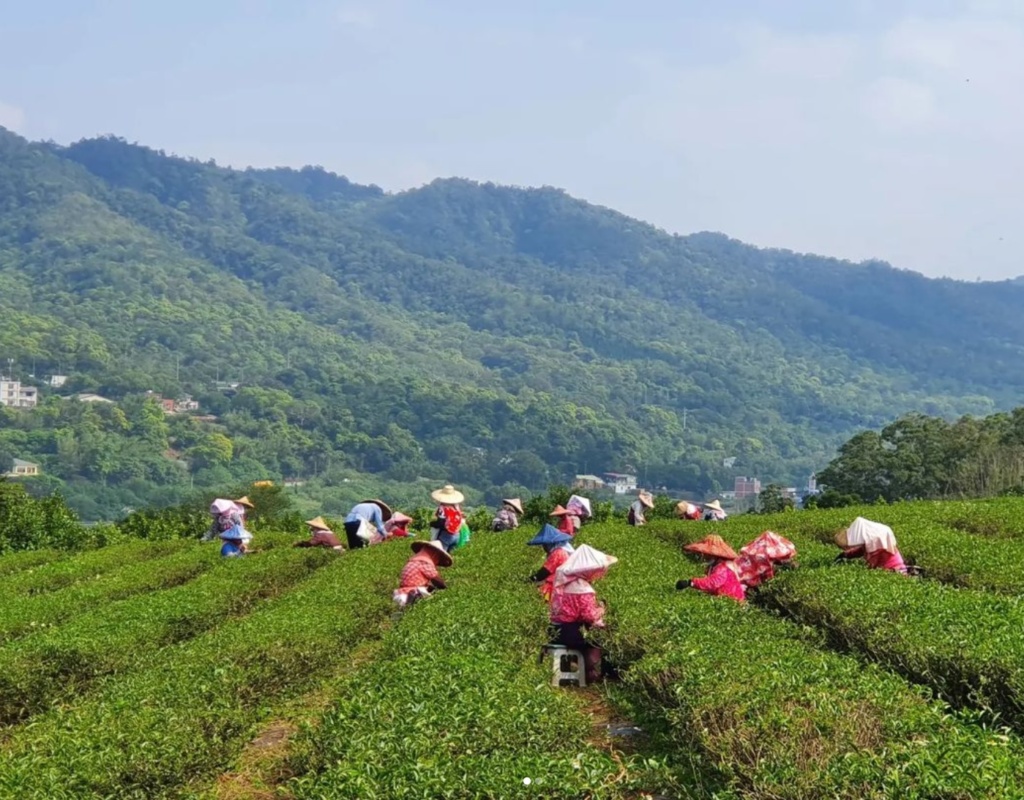
The tea plantation covers an area of 30 hectares and is cultivated in a natural way according to weather conditions, making it ecologically sustainable.


Visitors can experience tea picking and making by booking a DIY experience!

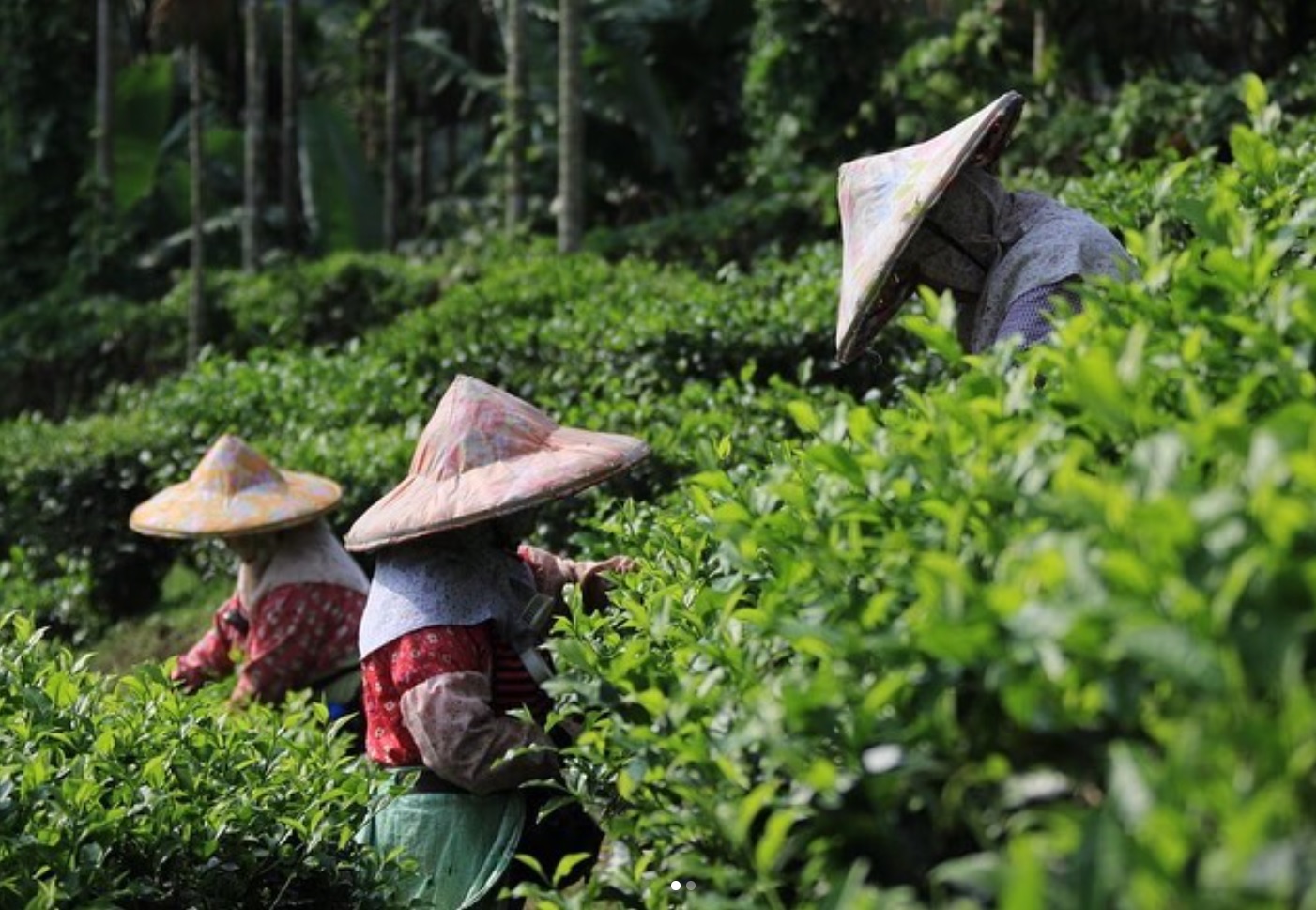
One response to “Tea Factories & Museums in Taiwan”
As a big tea fan from Germany, it’s great to know what my trip in Taiwan can be scheduled like. Thanks for the info!